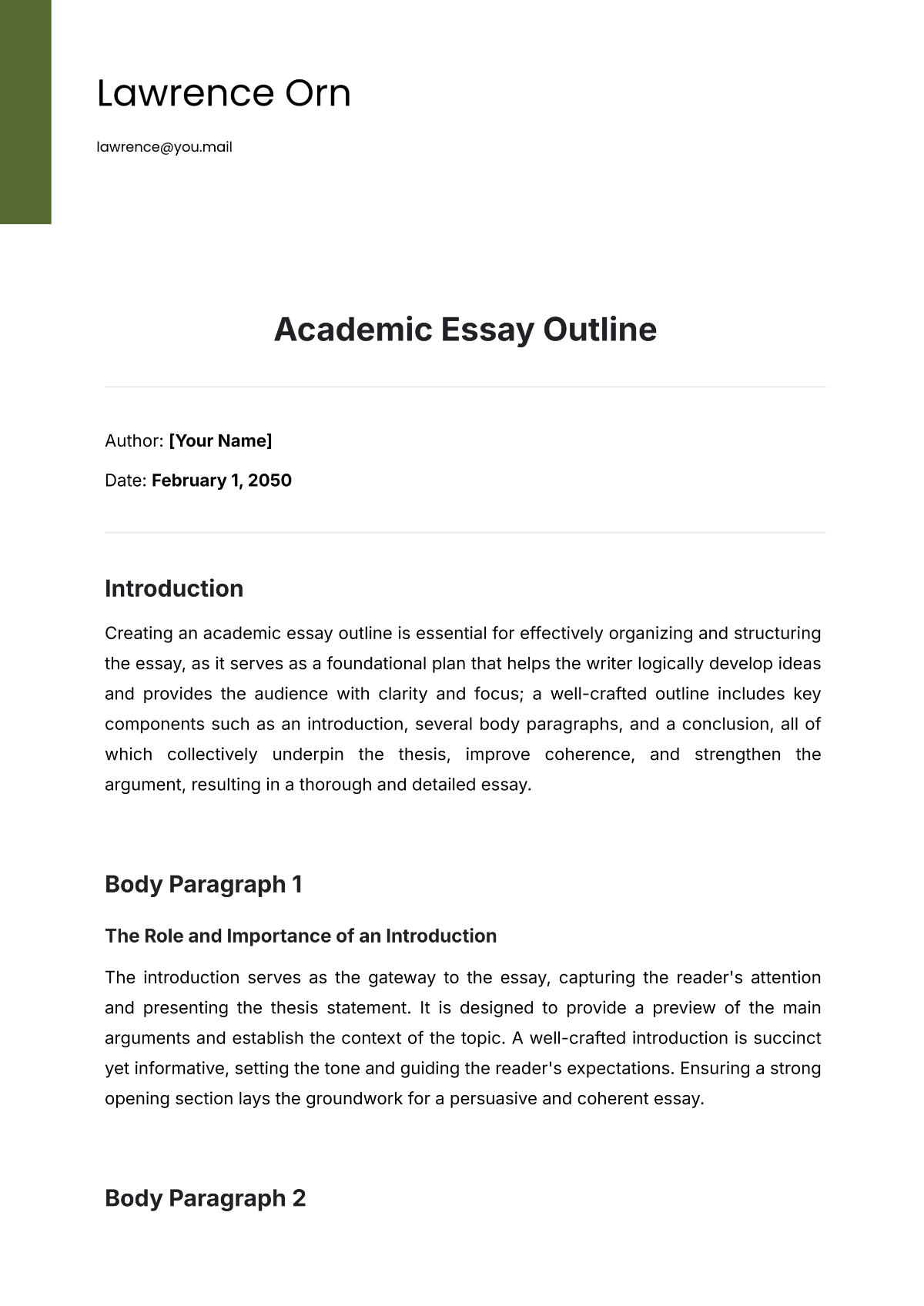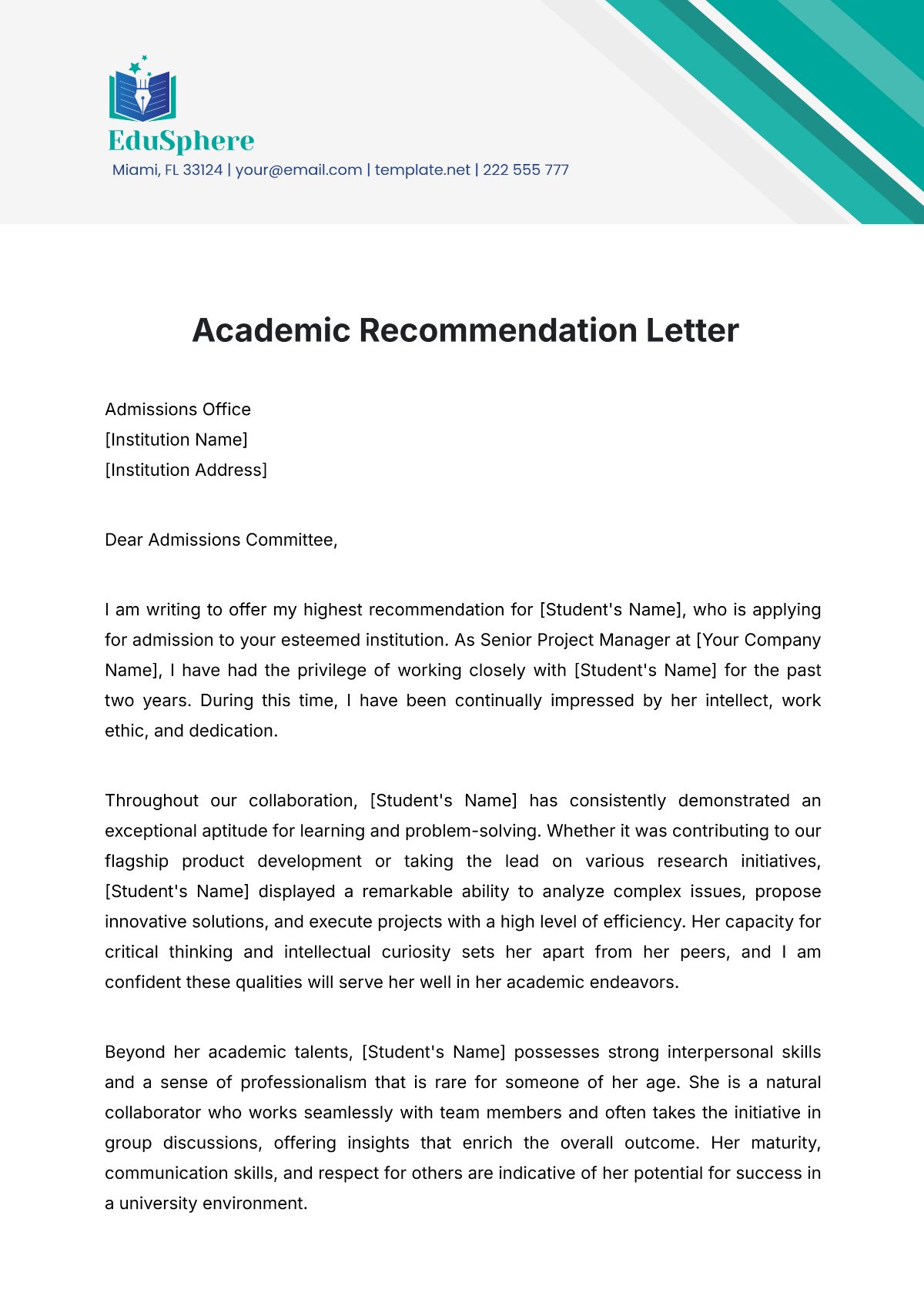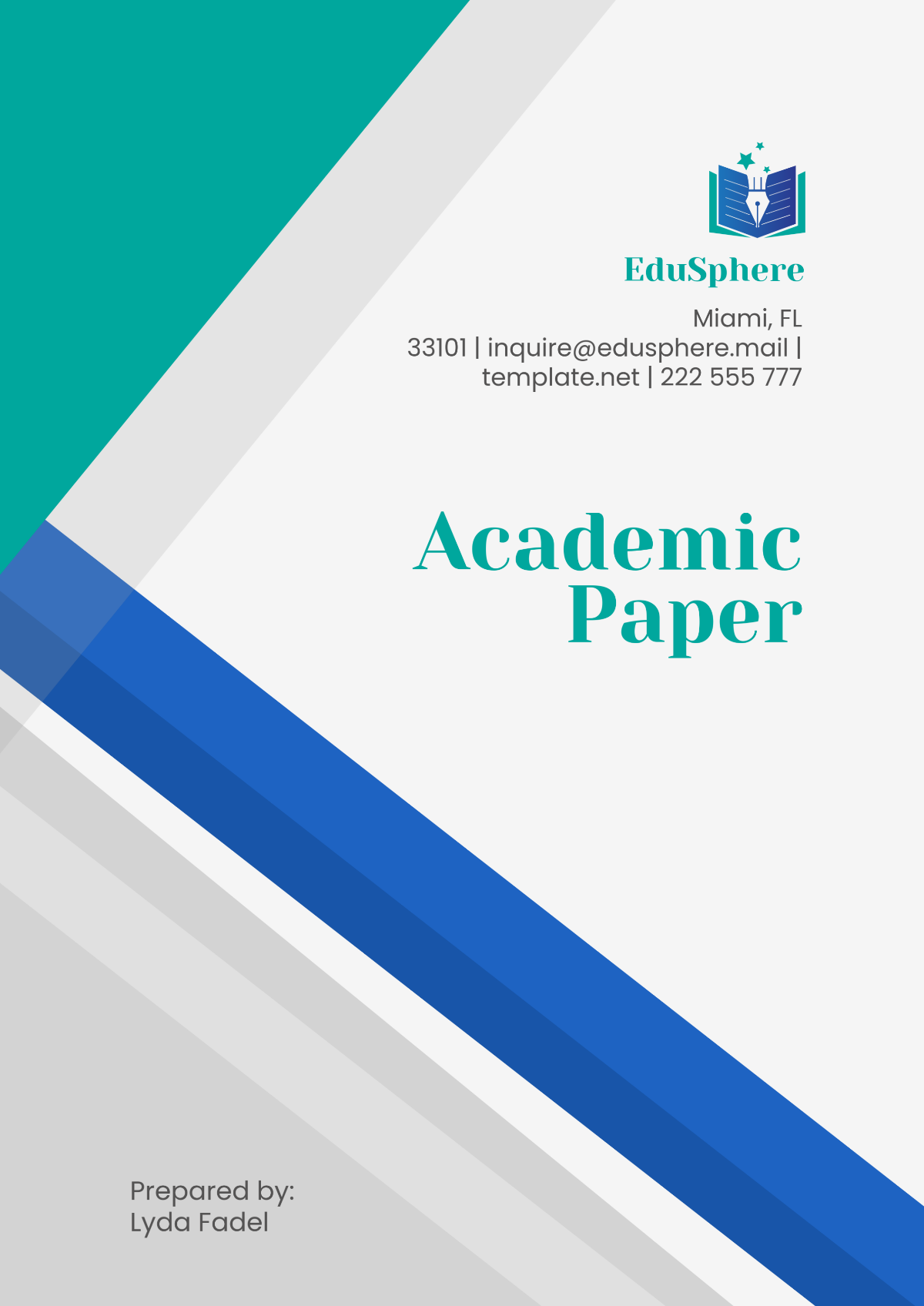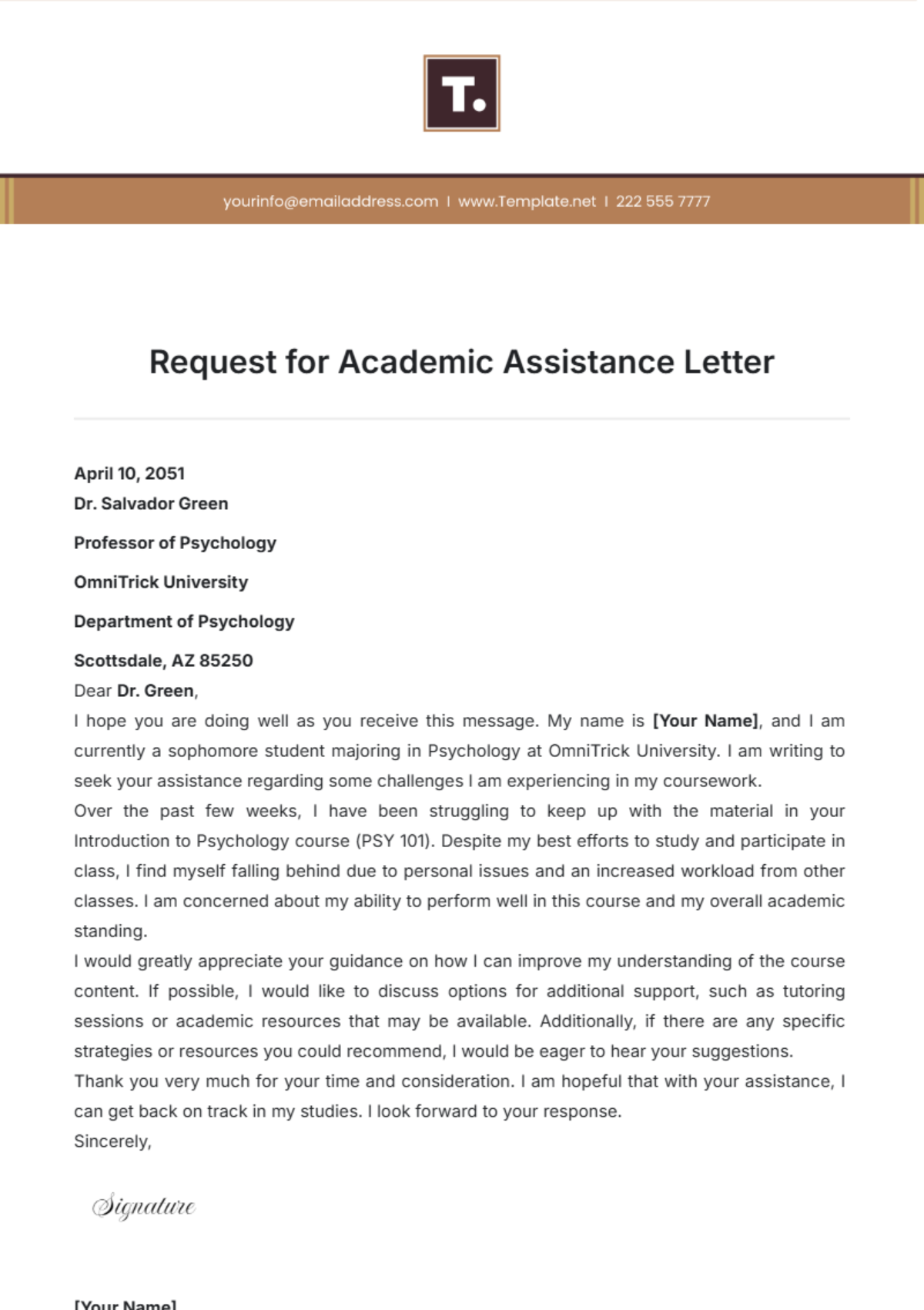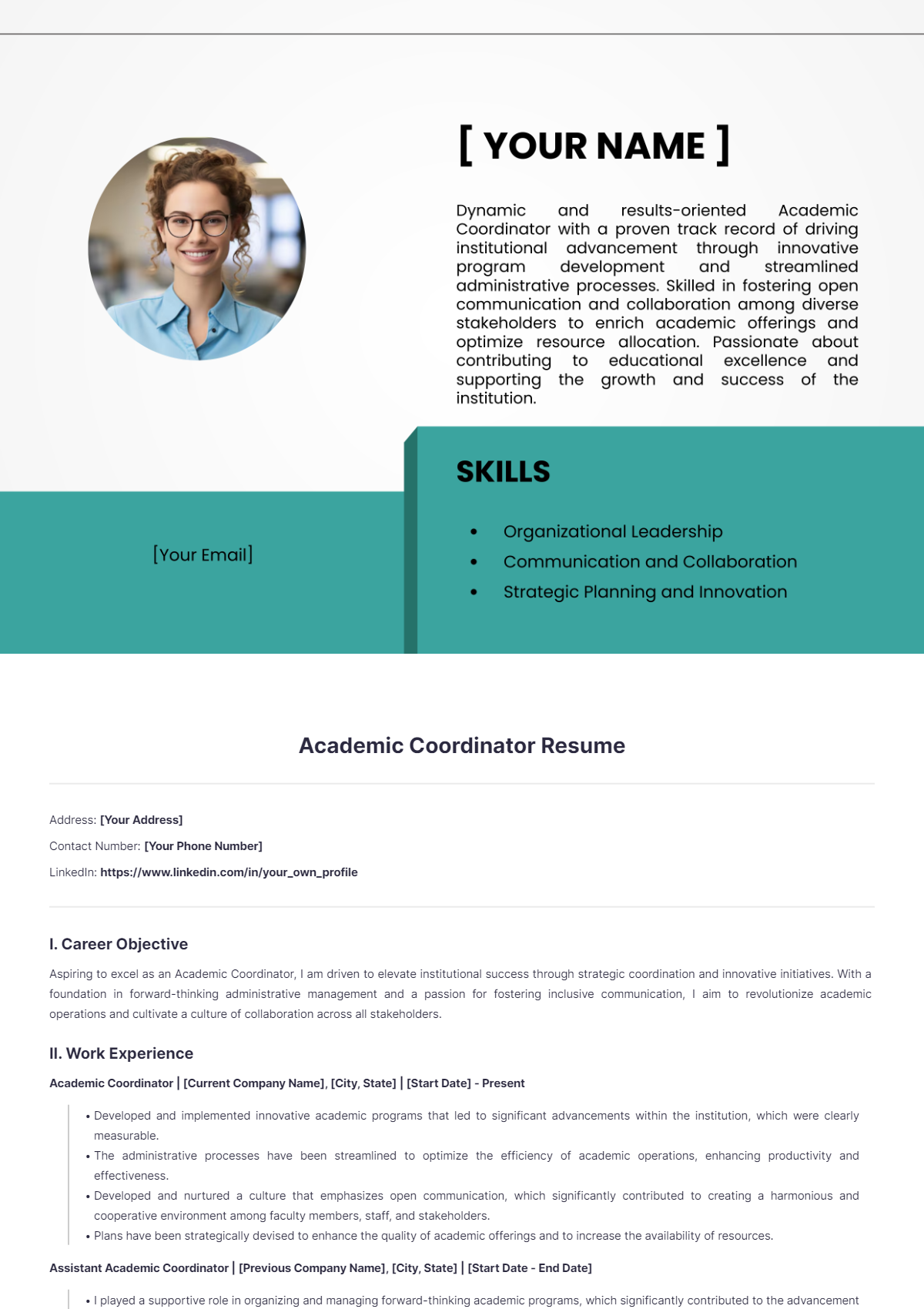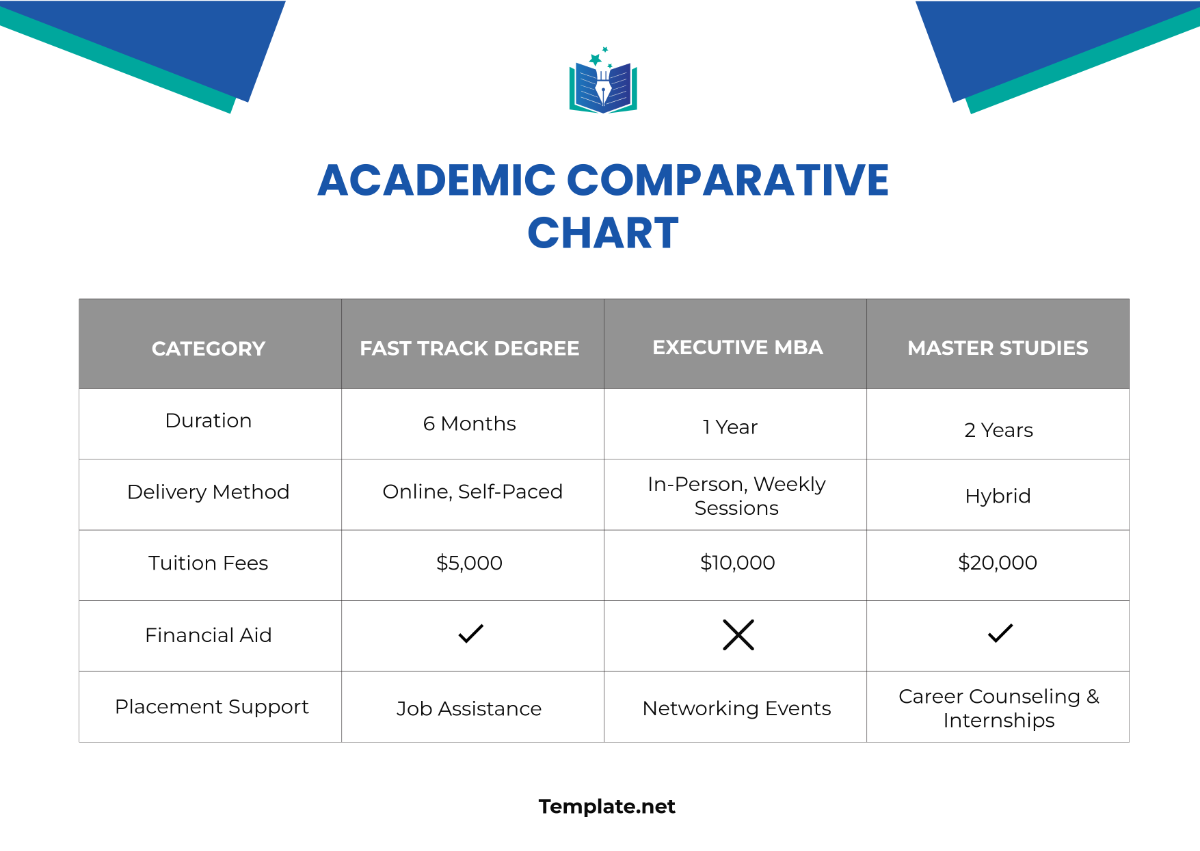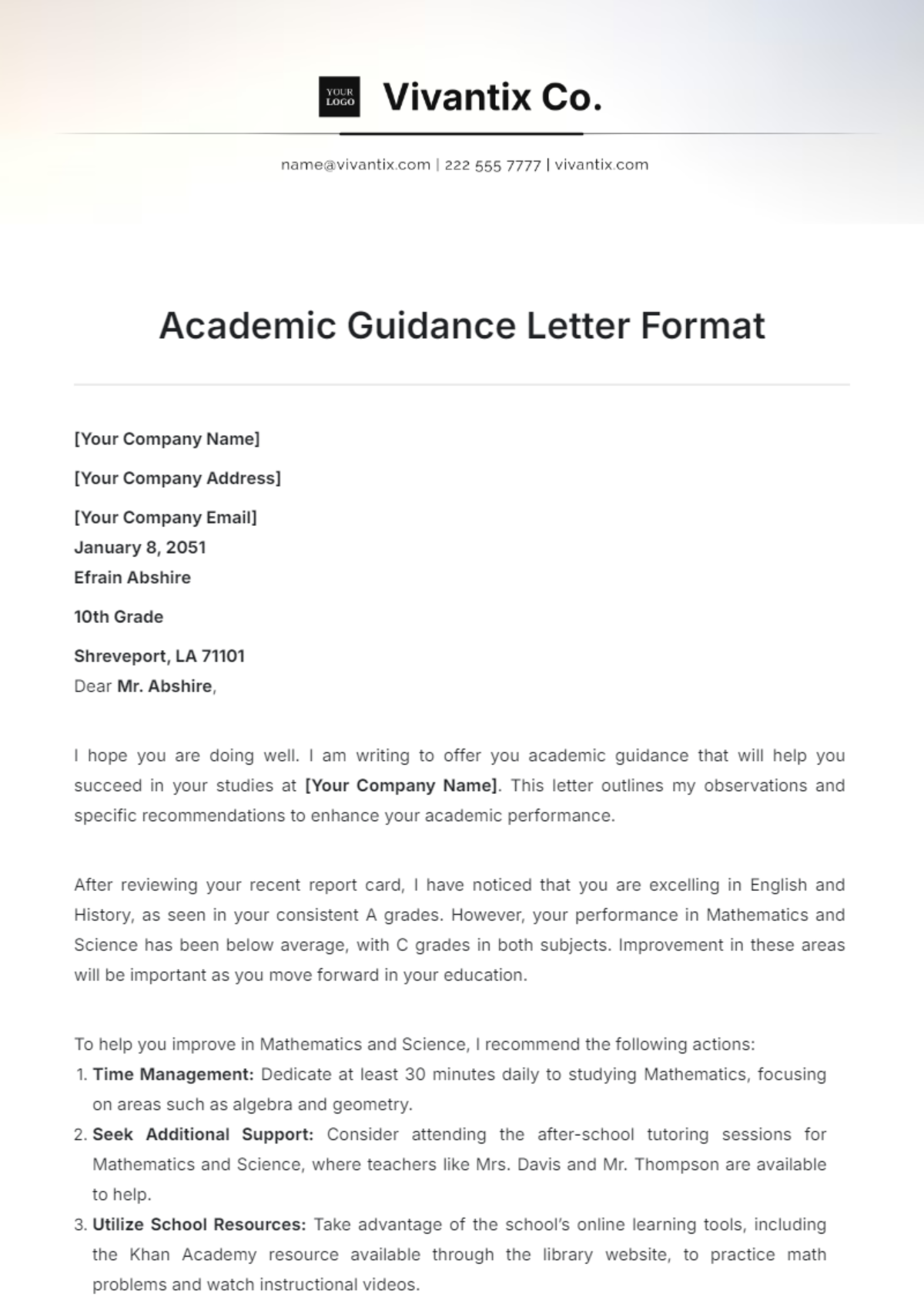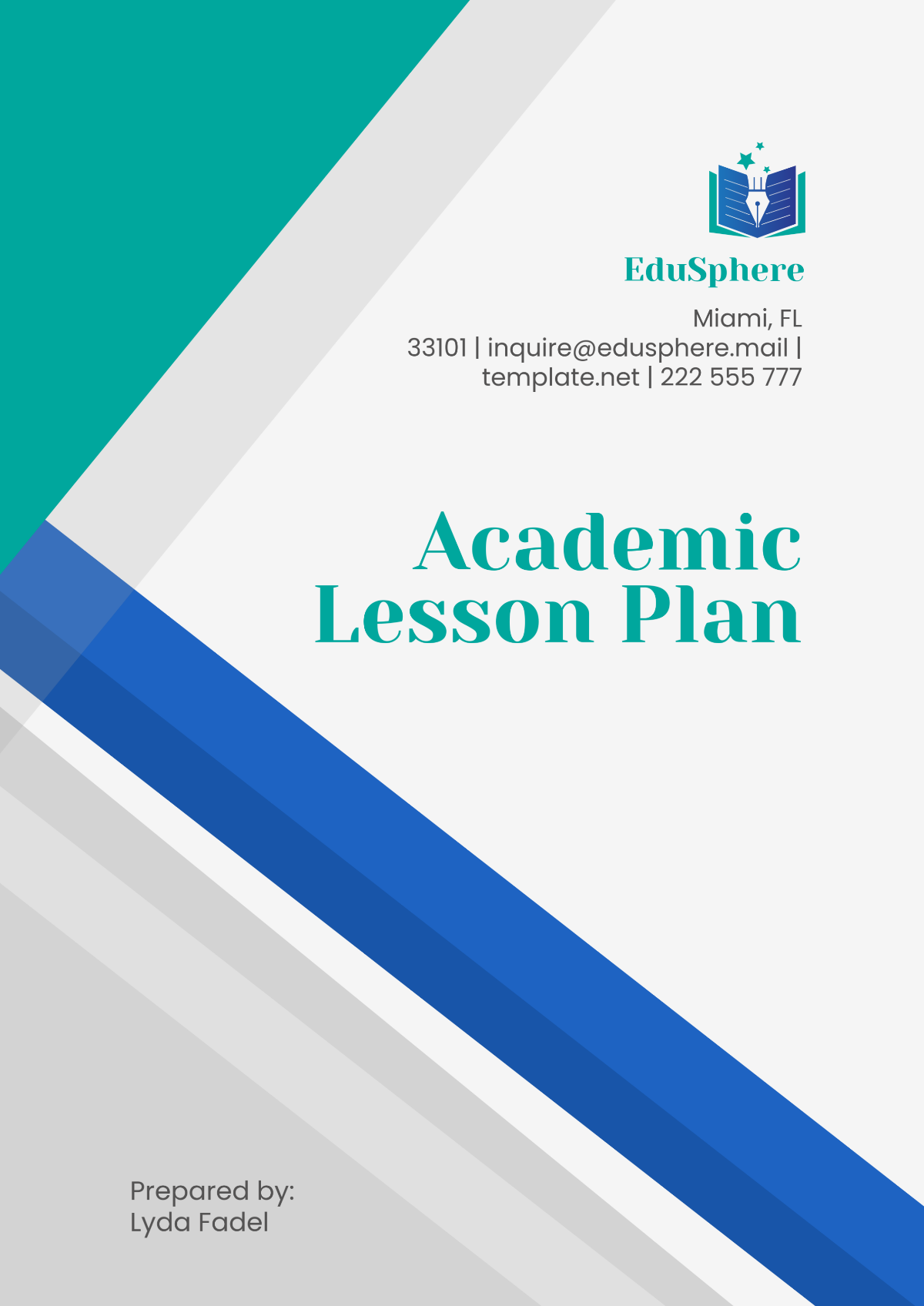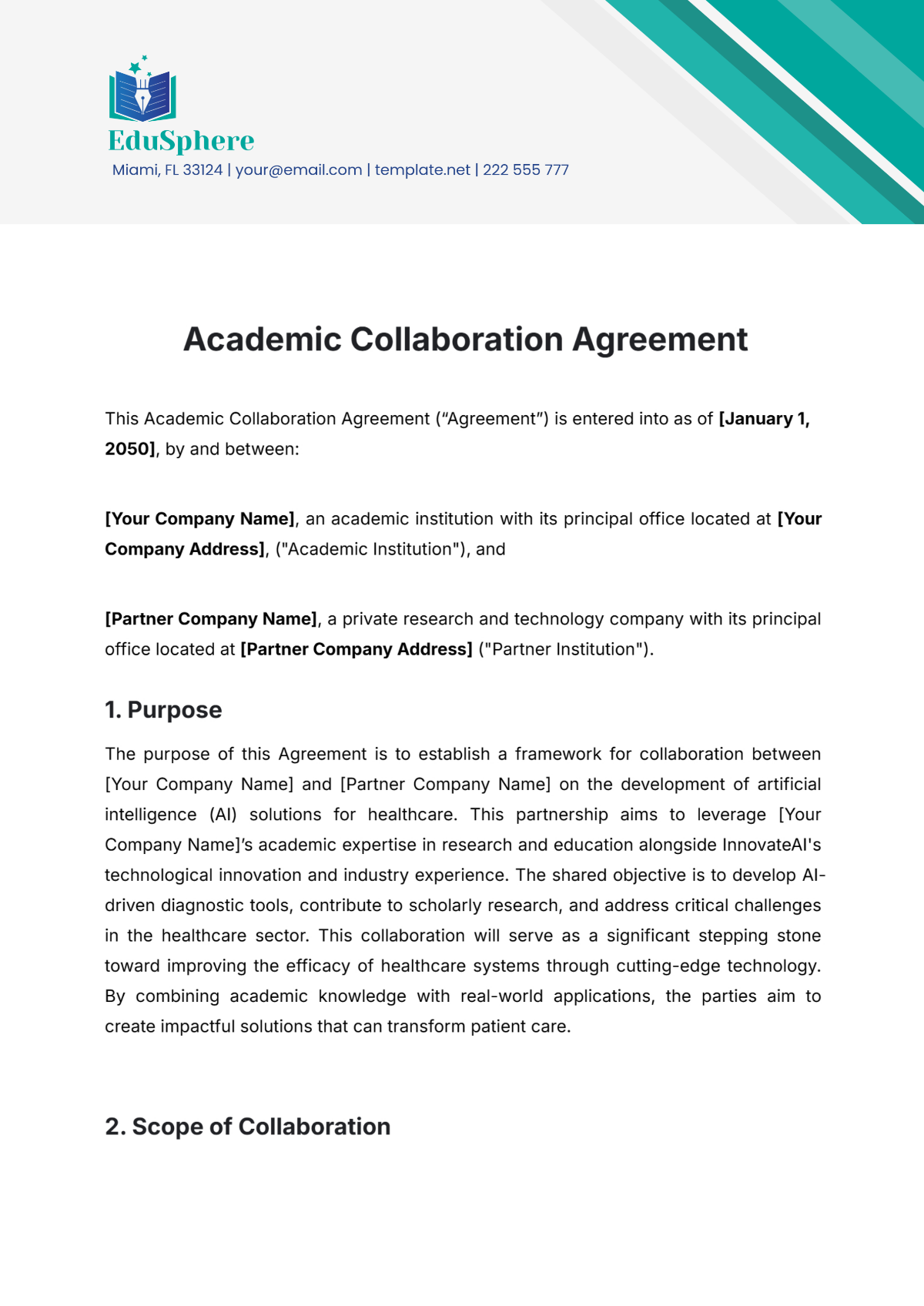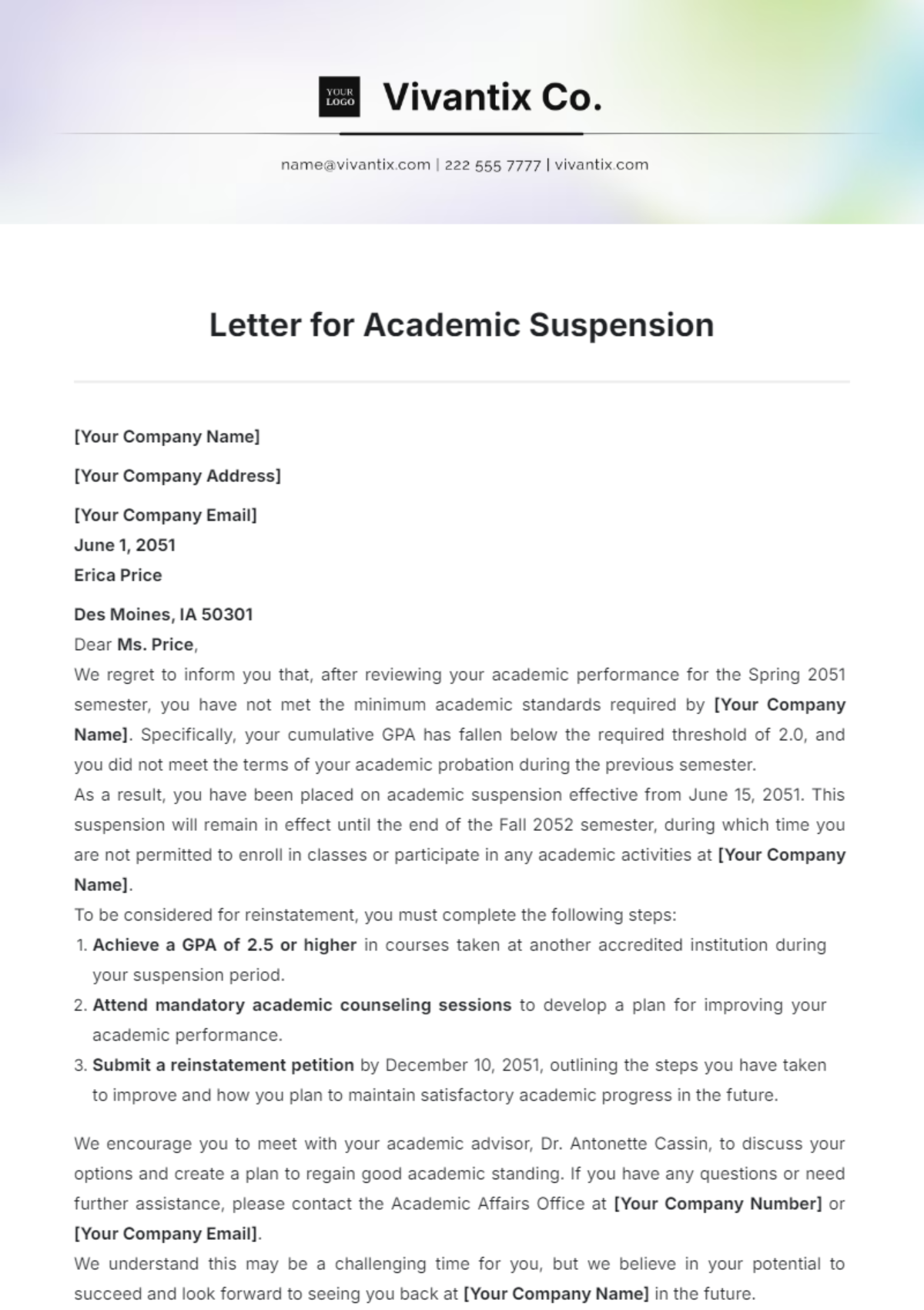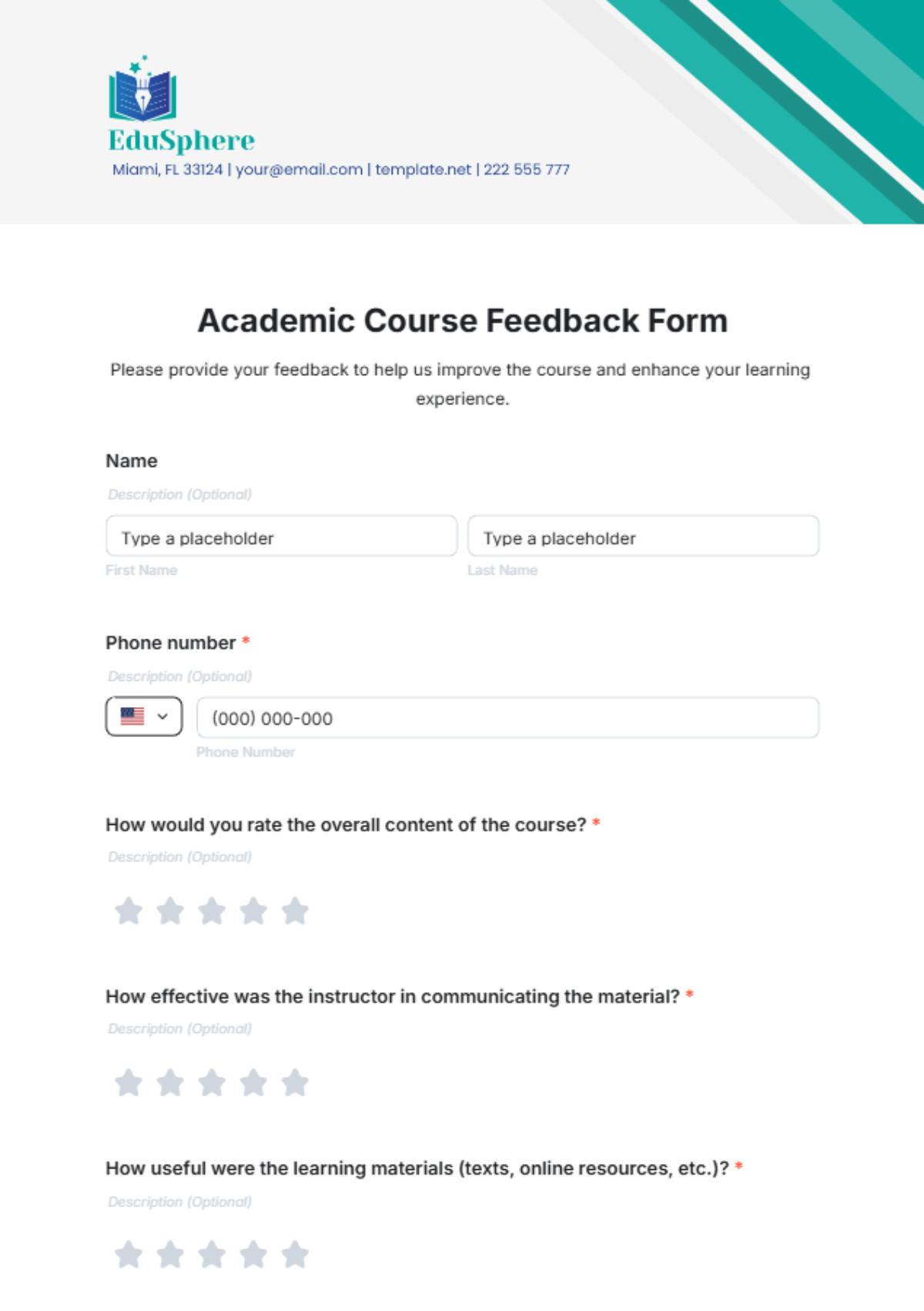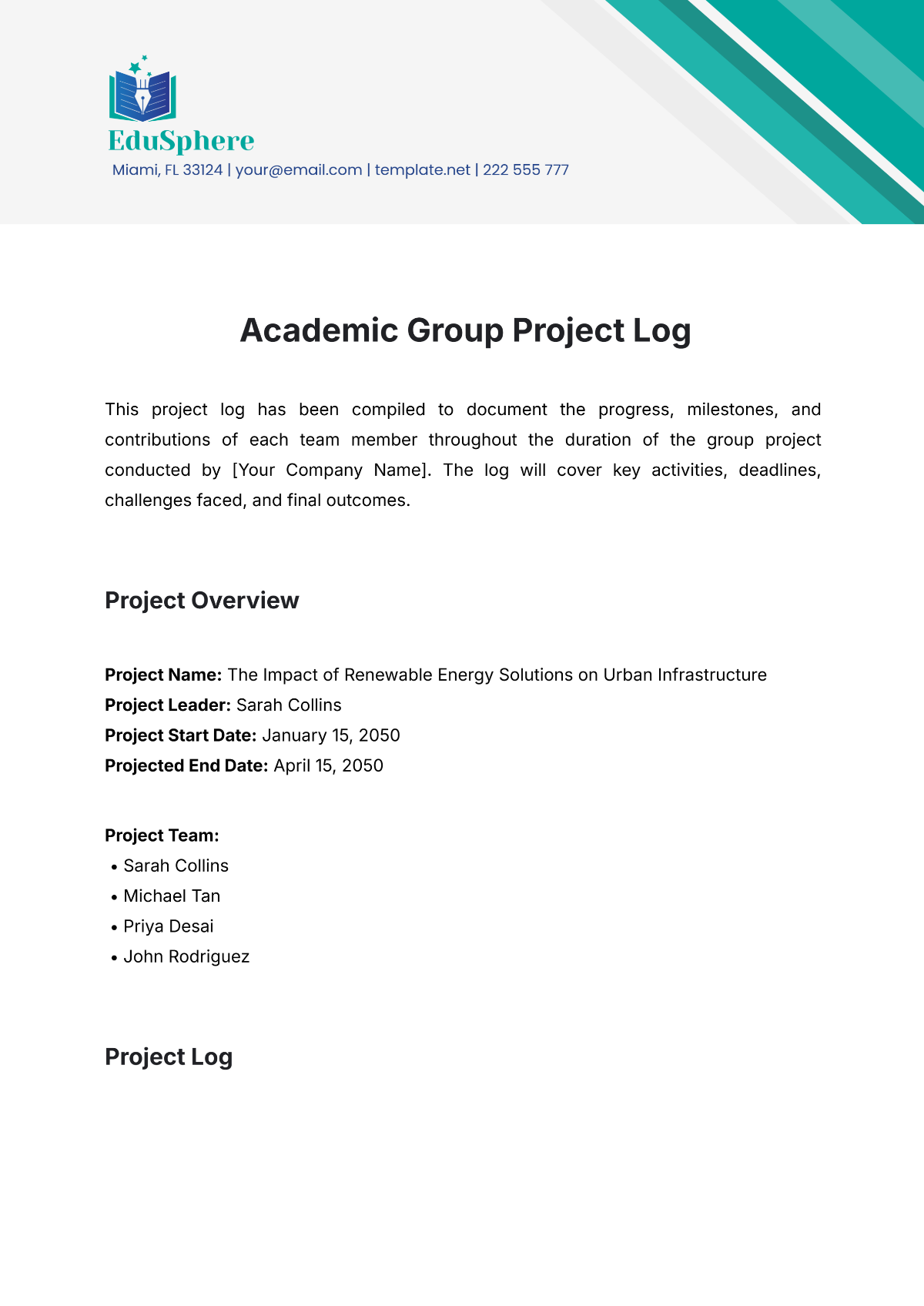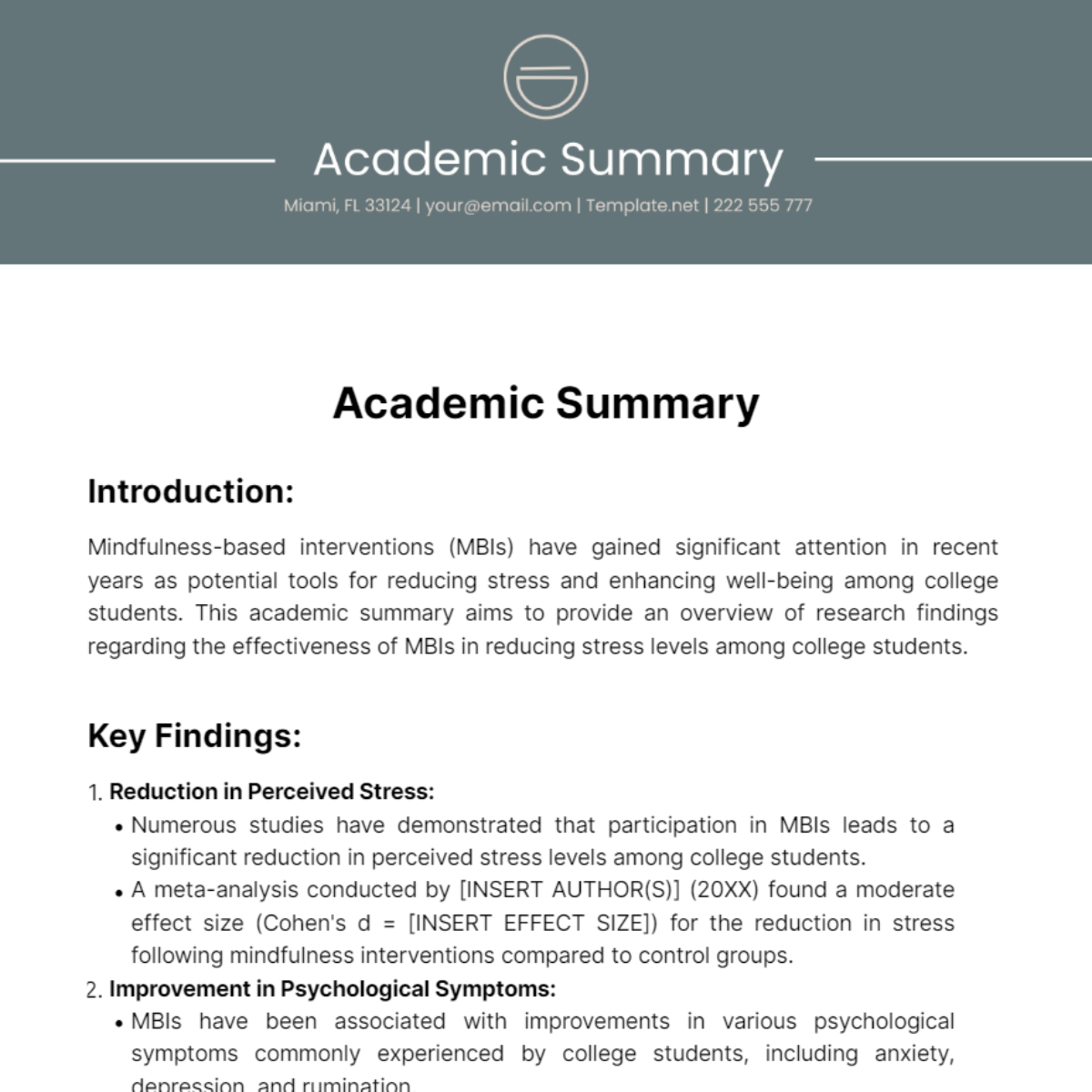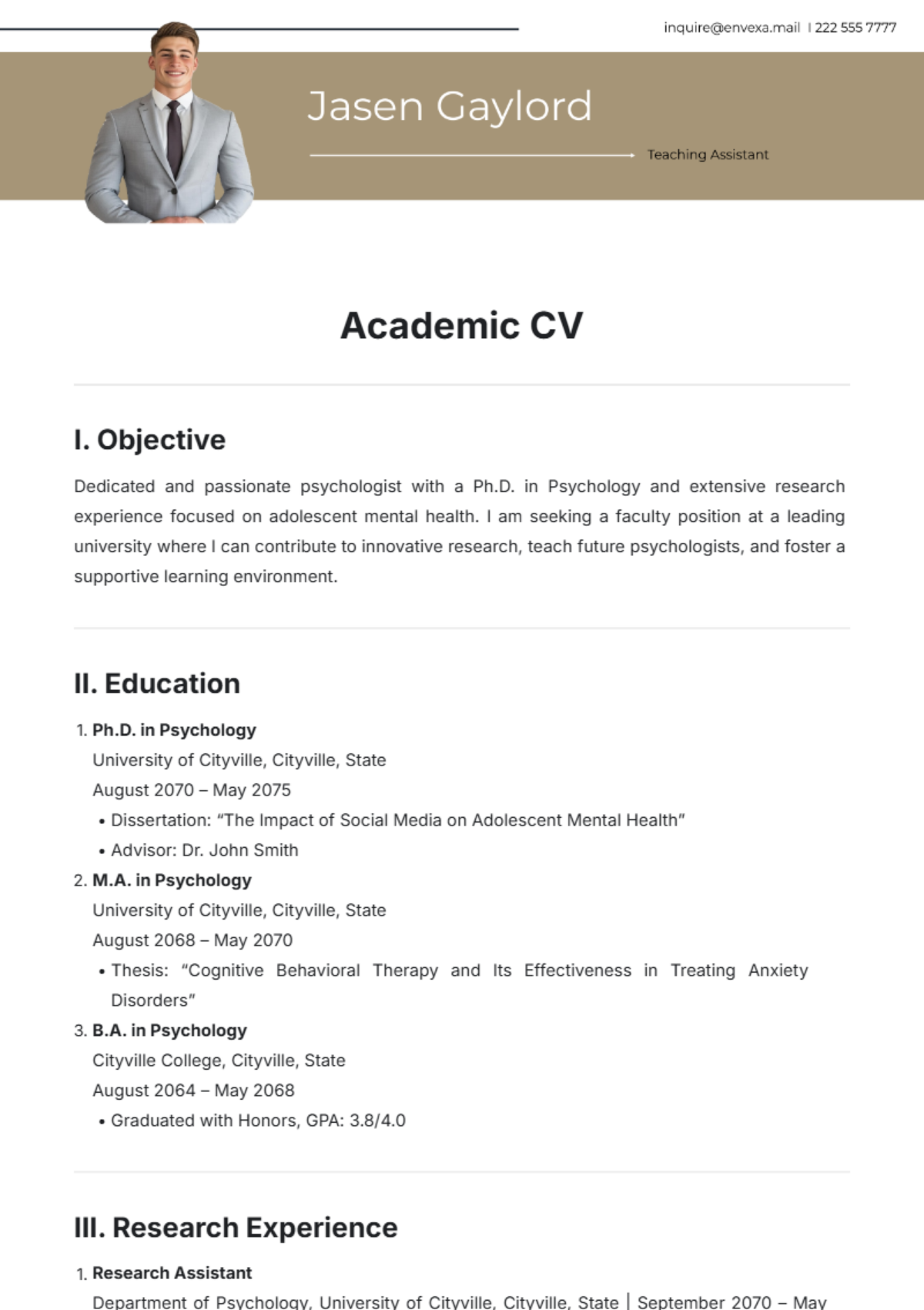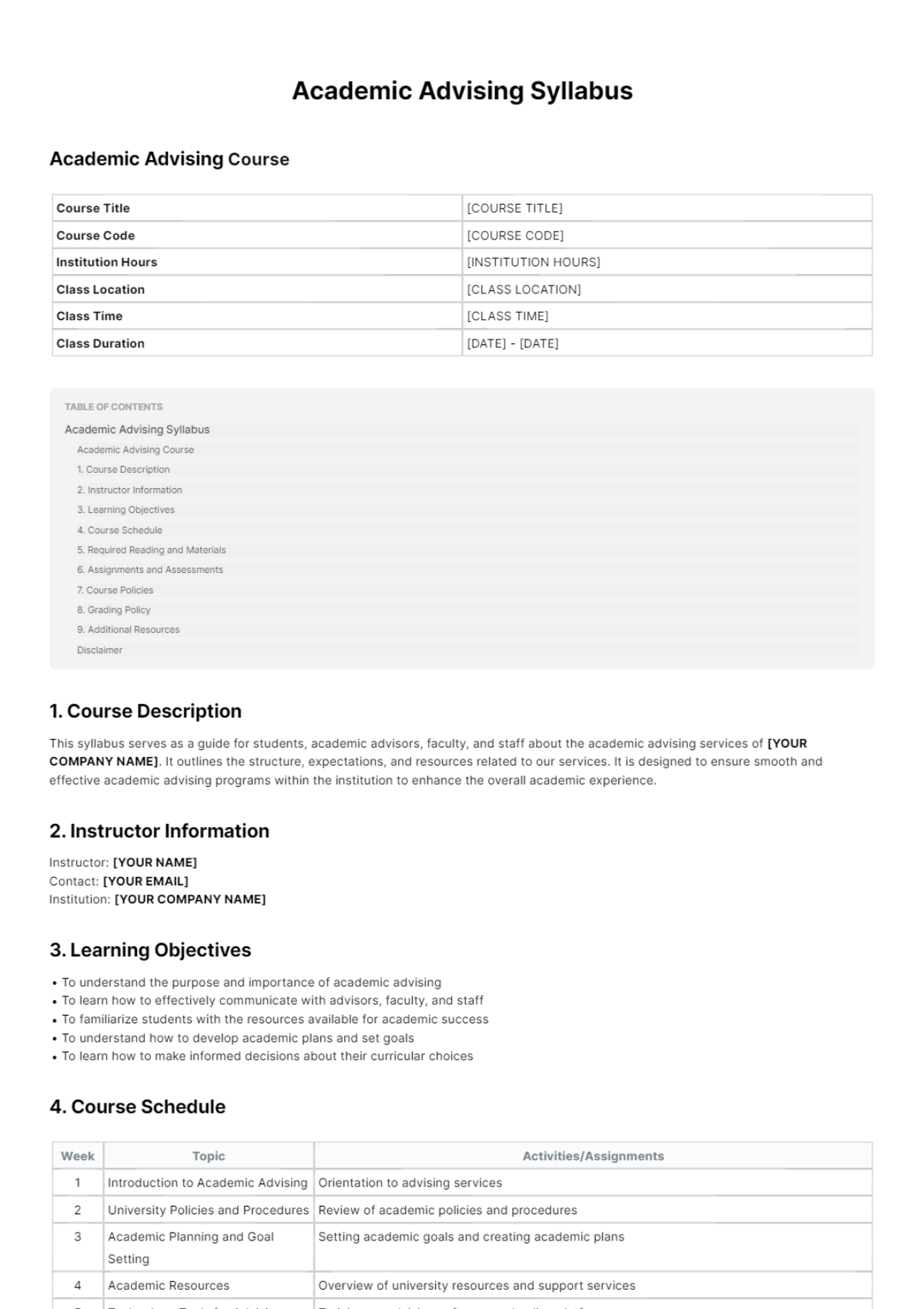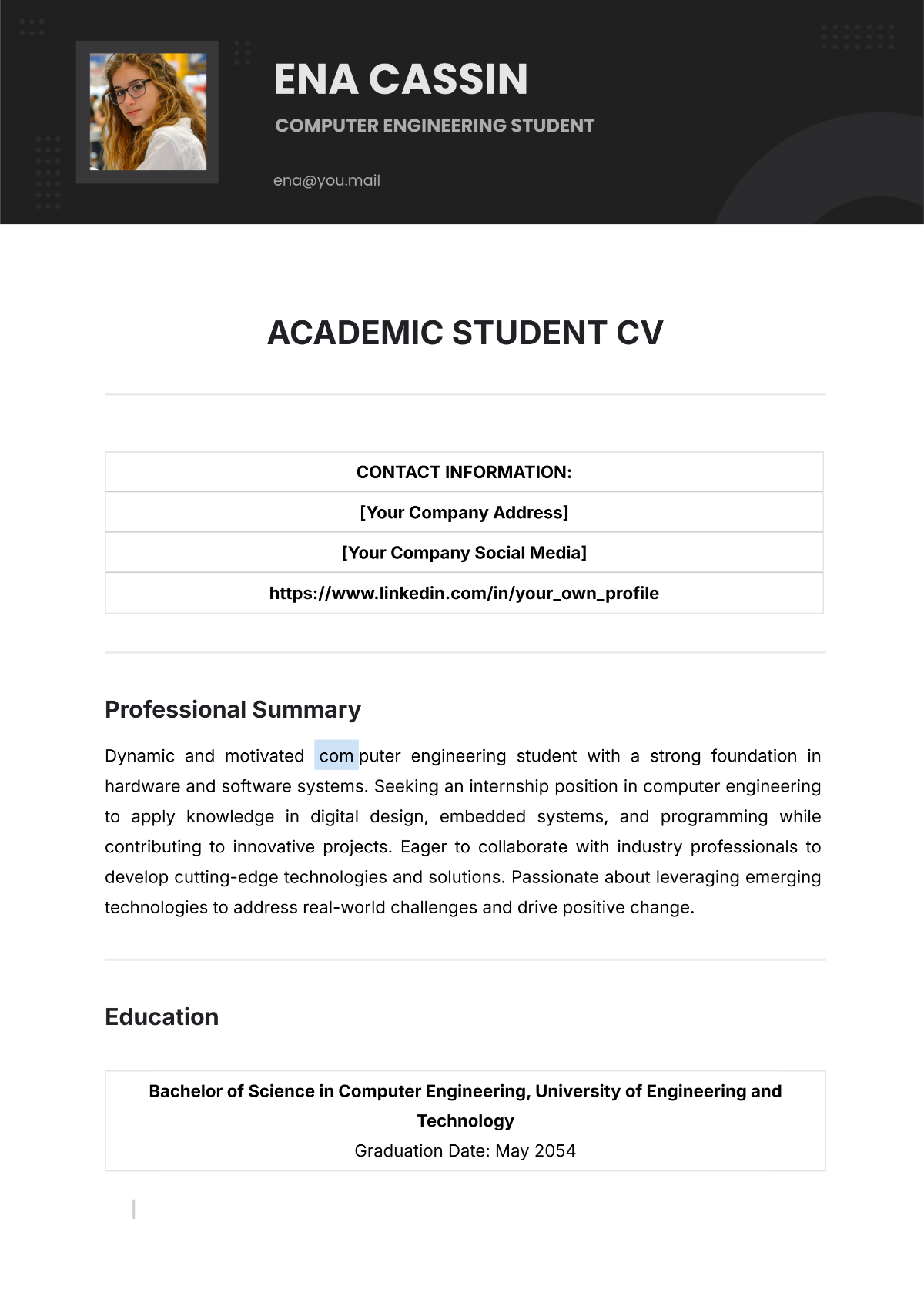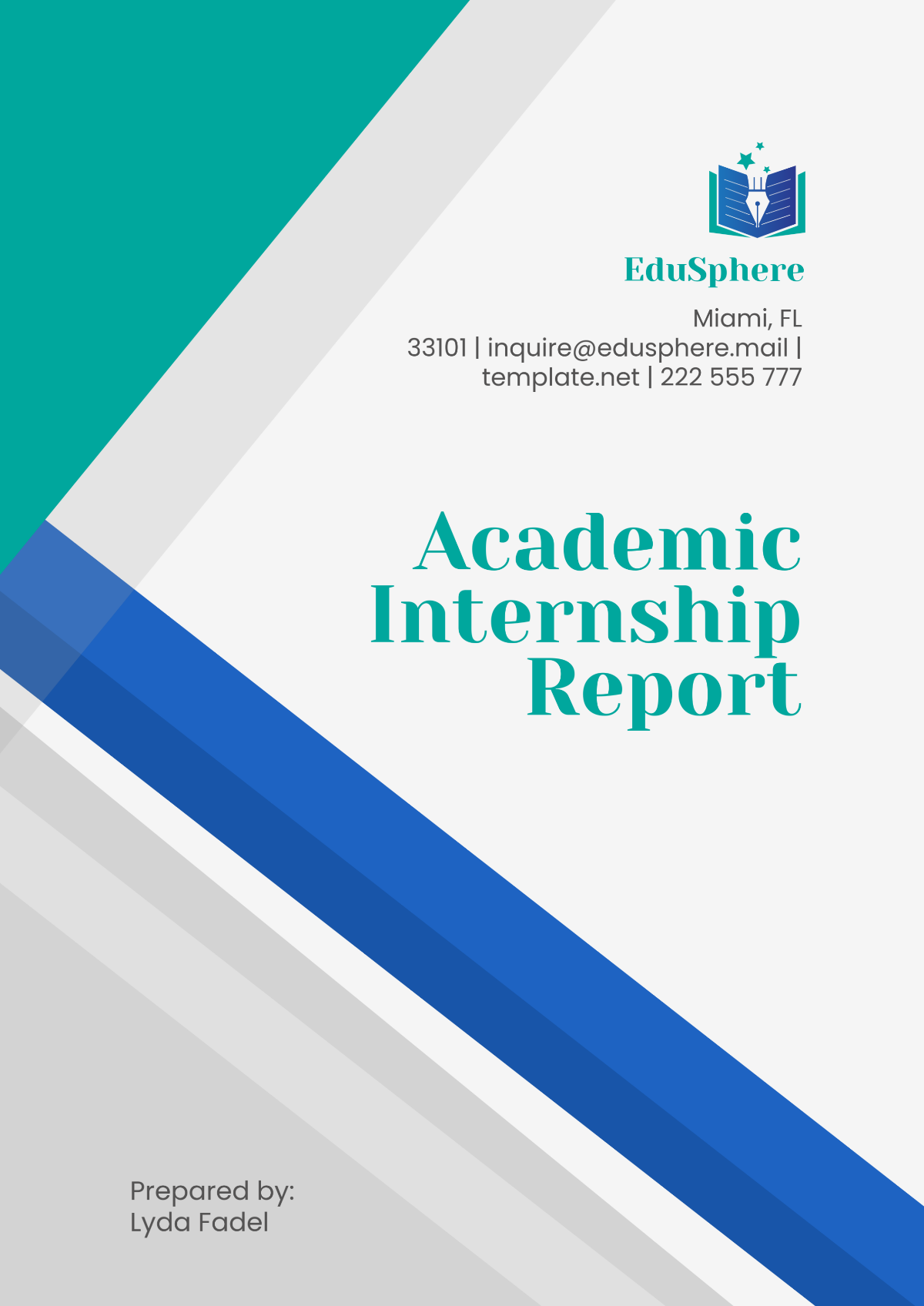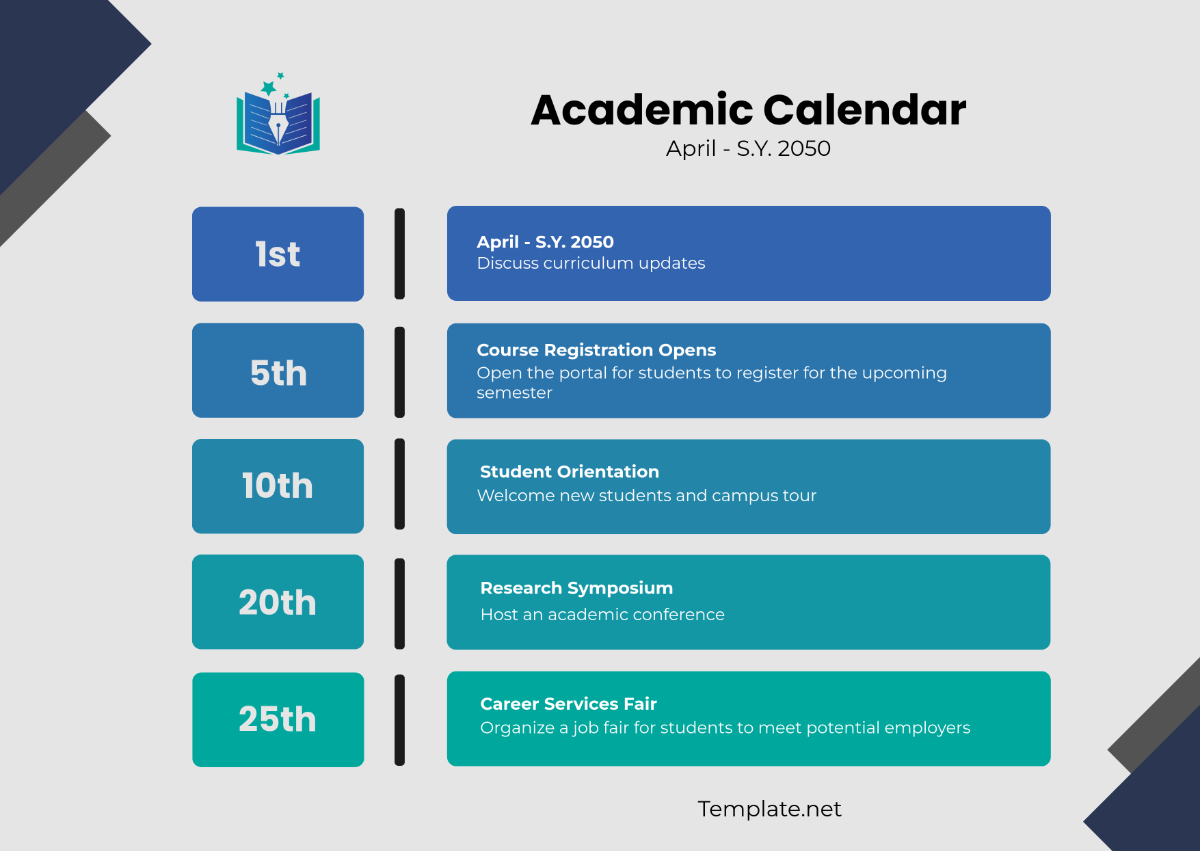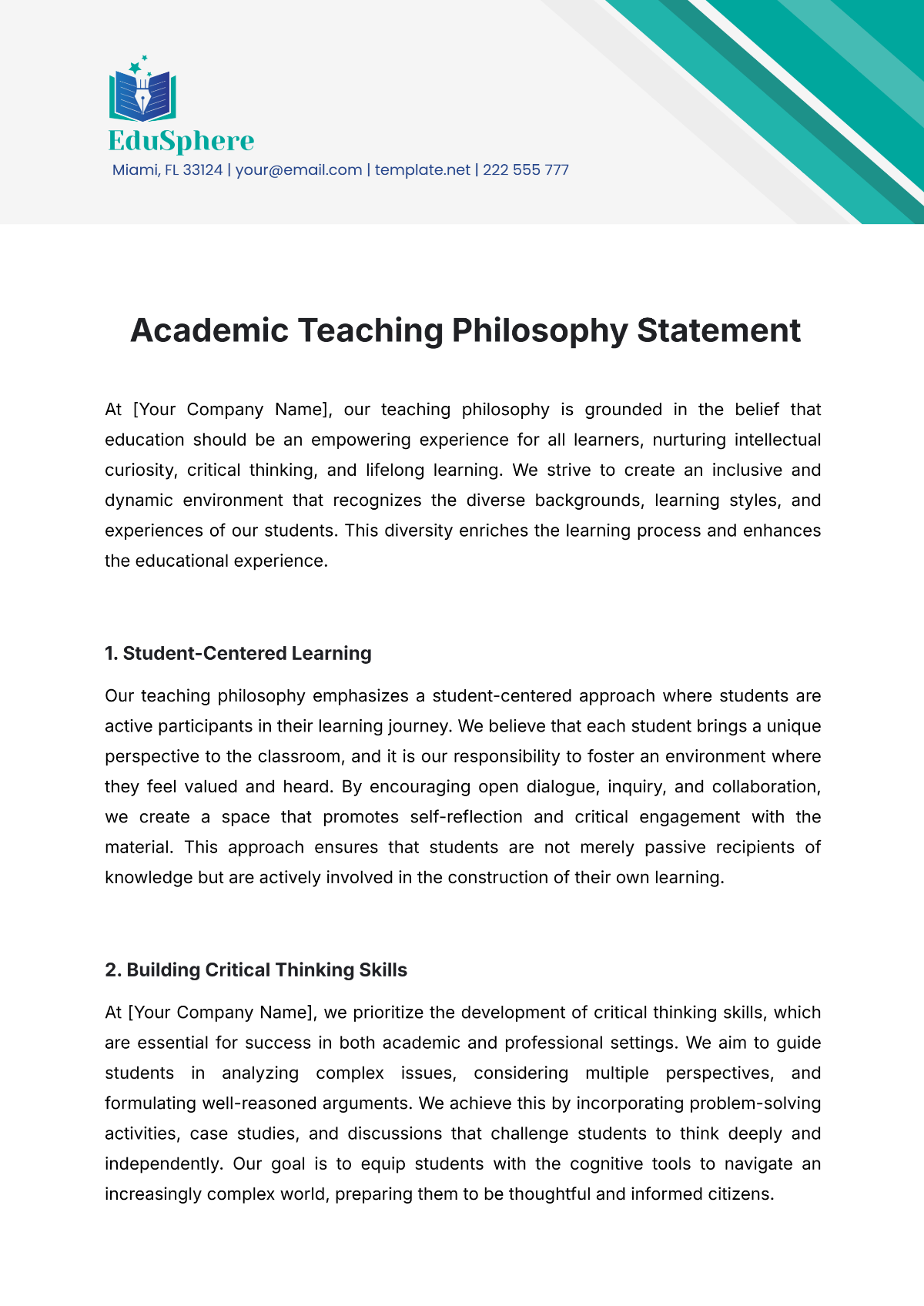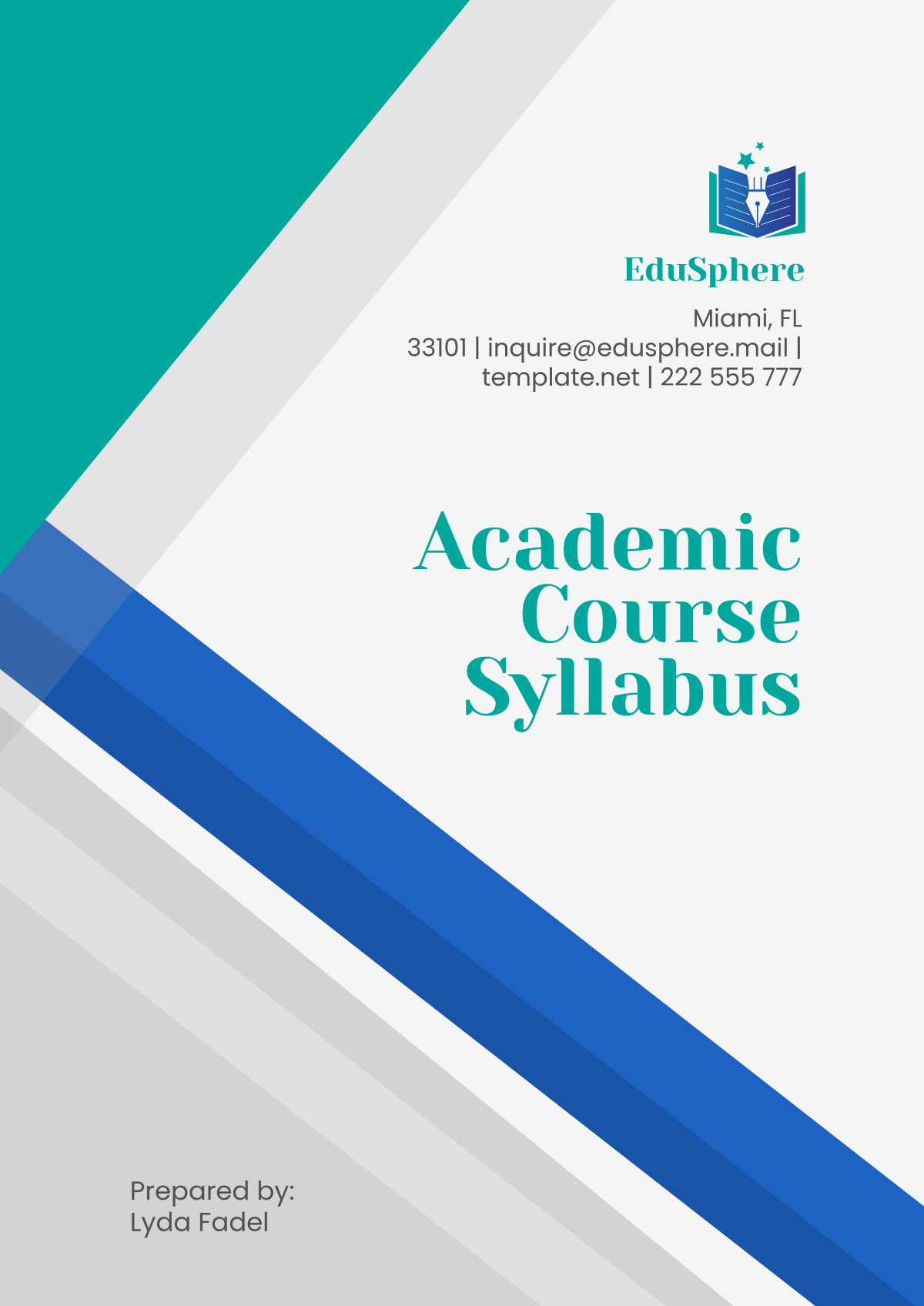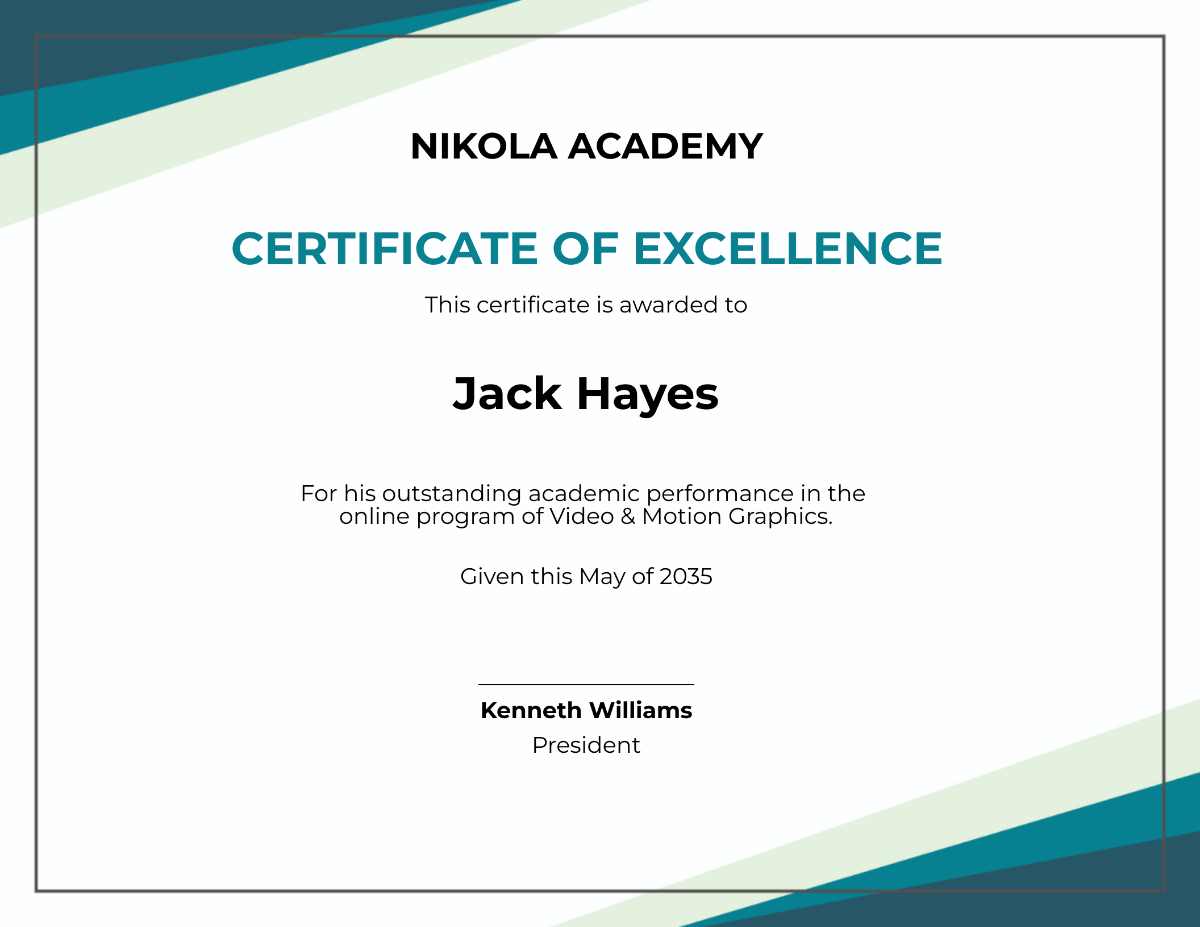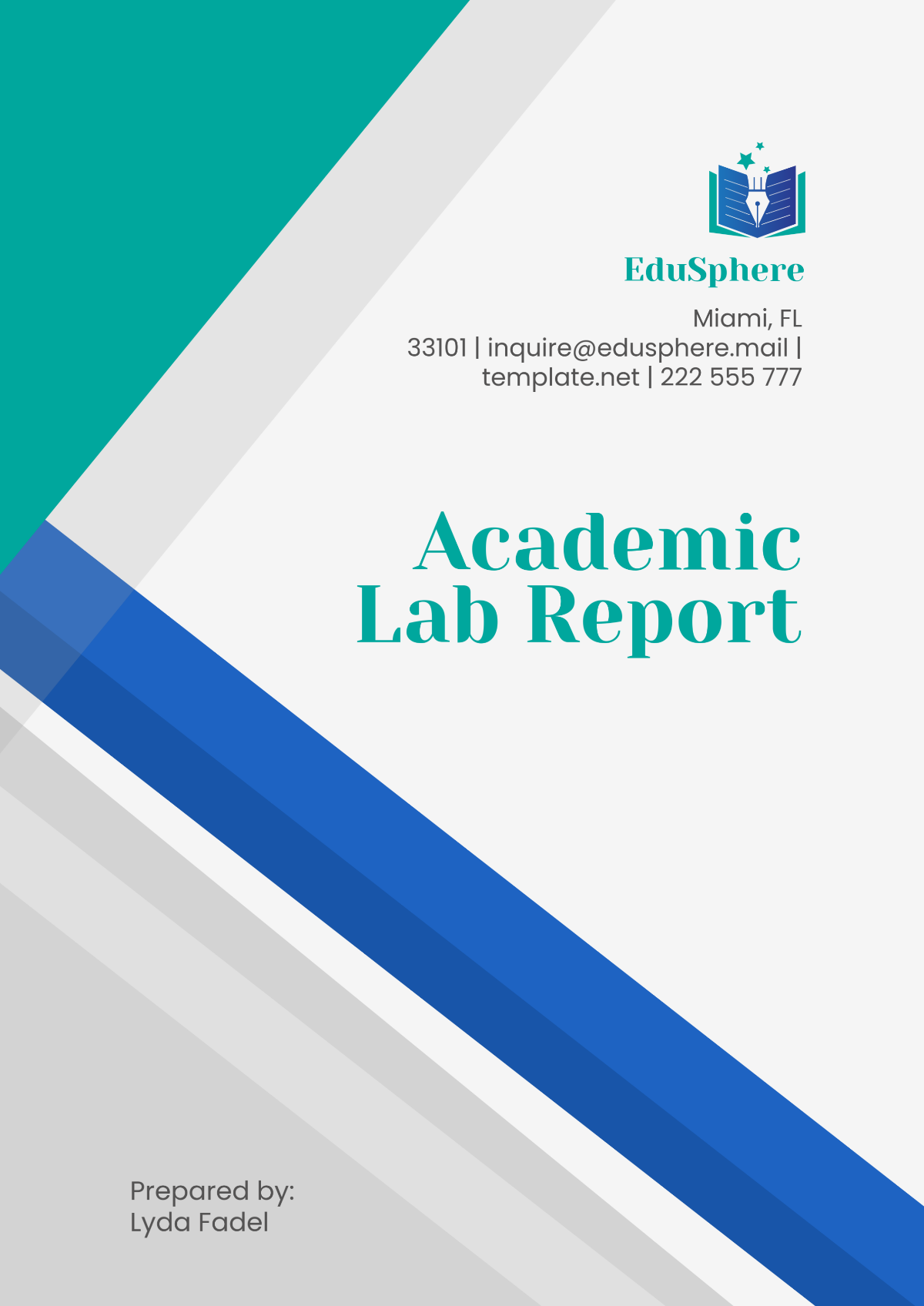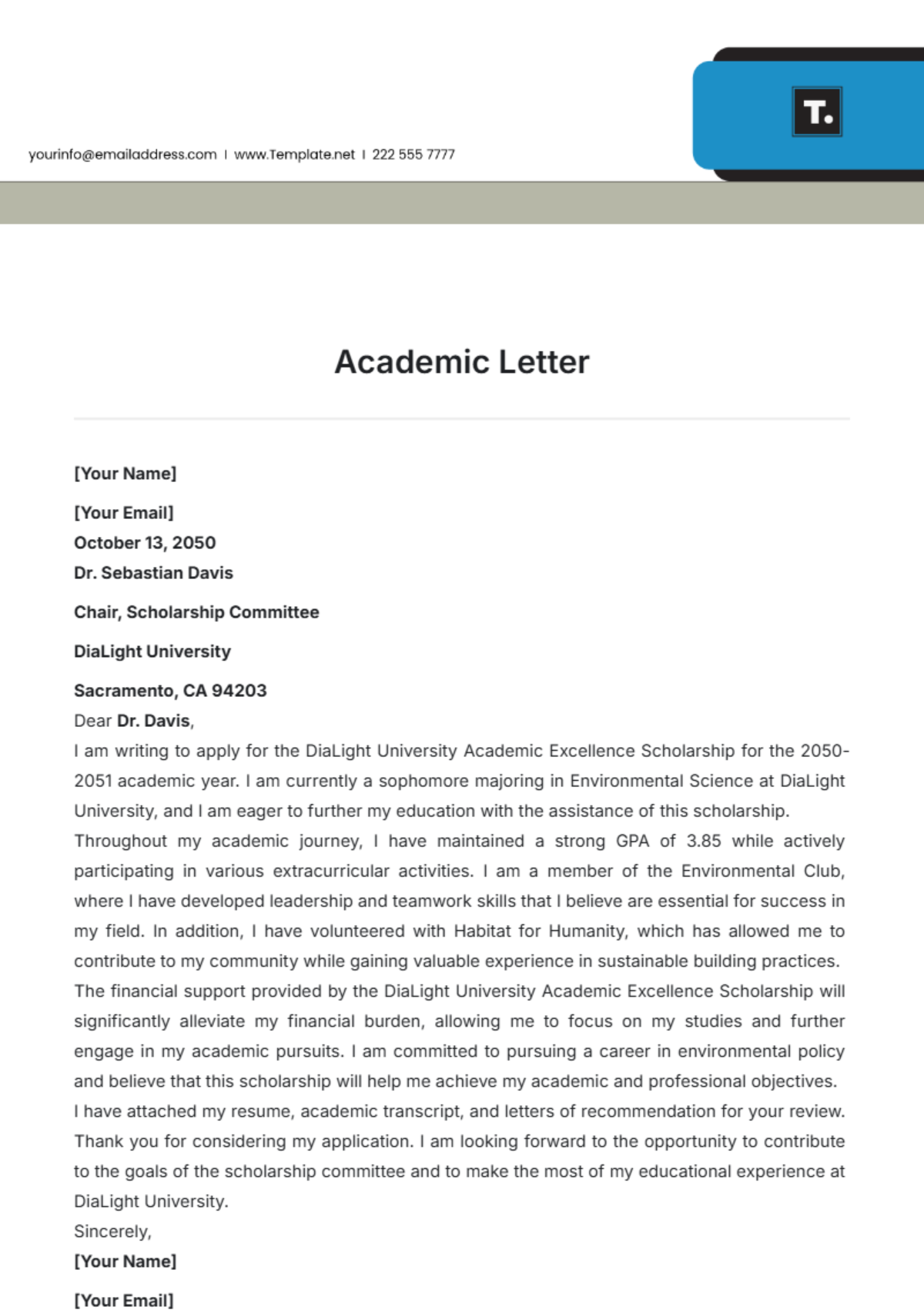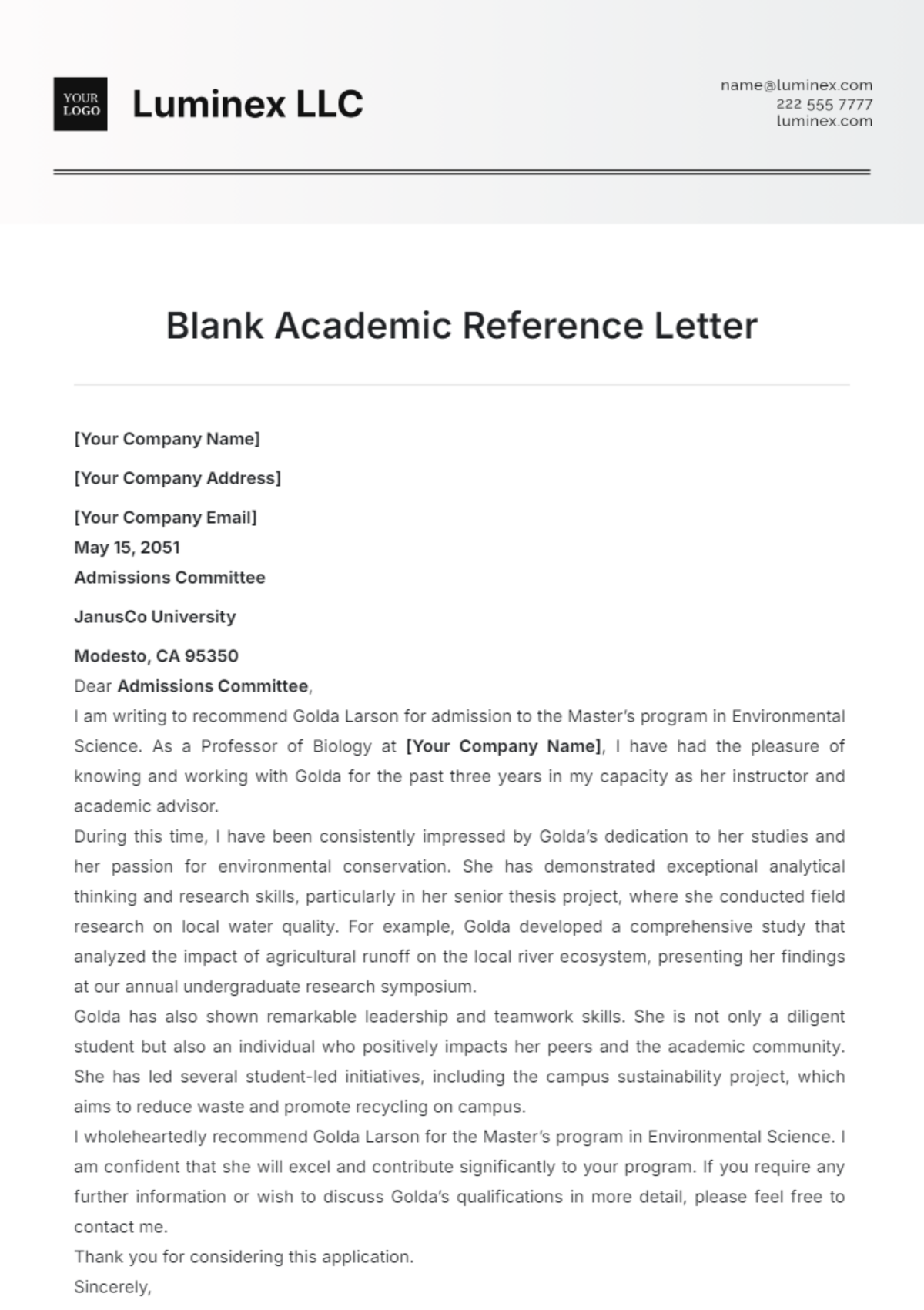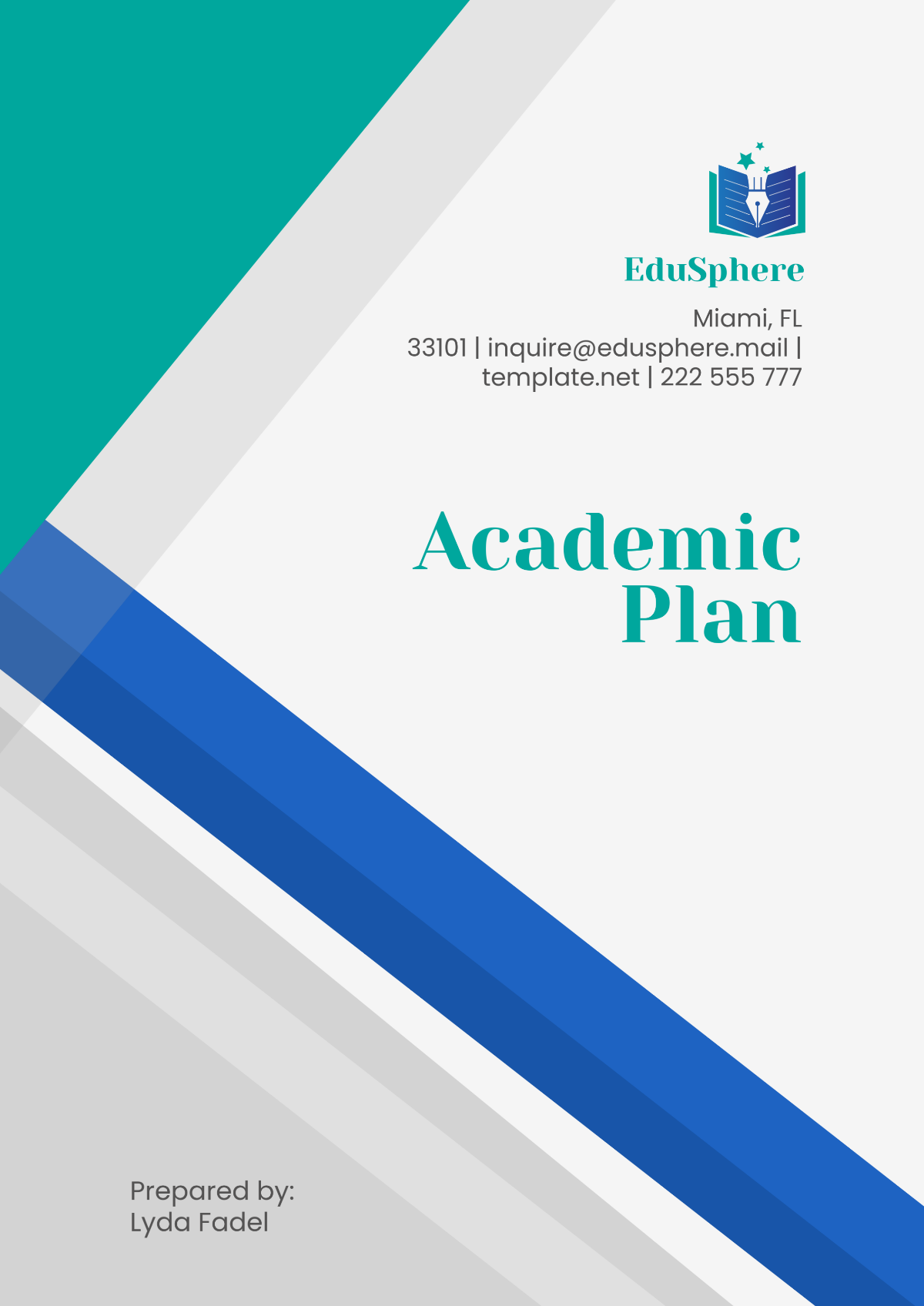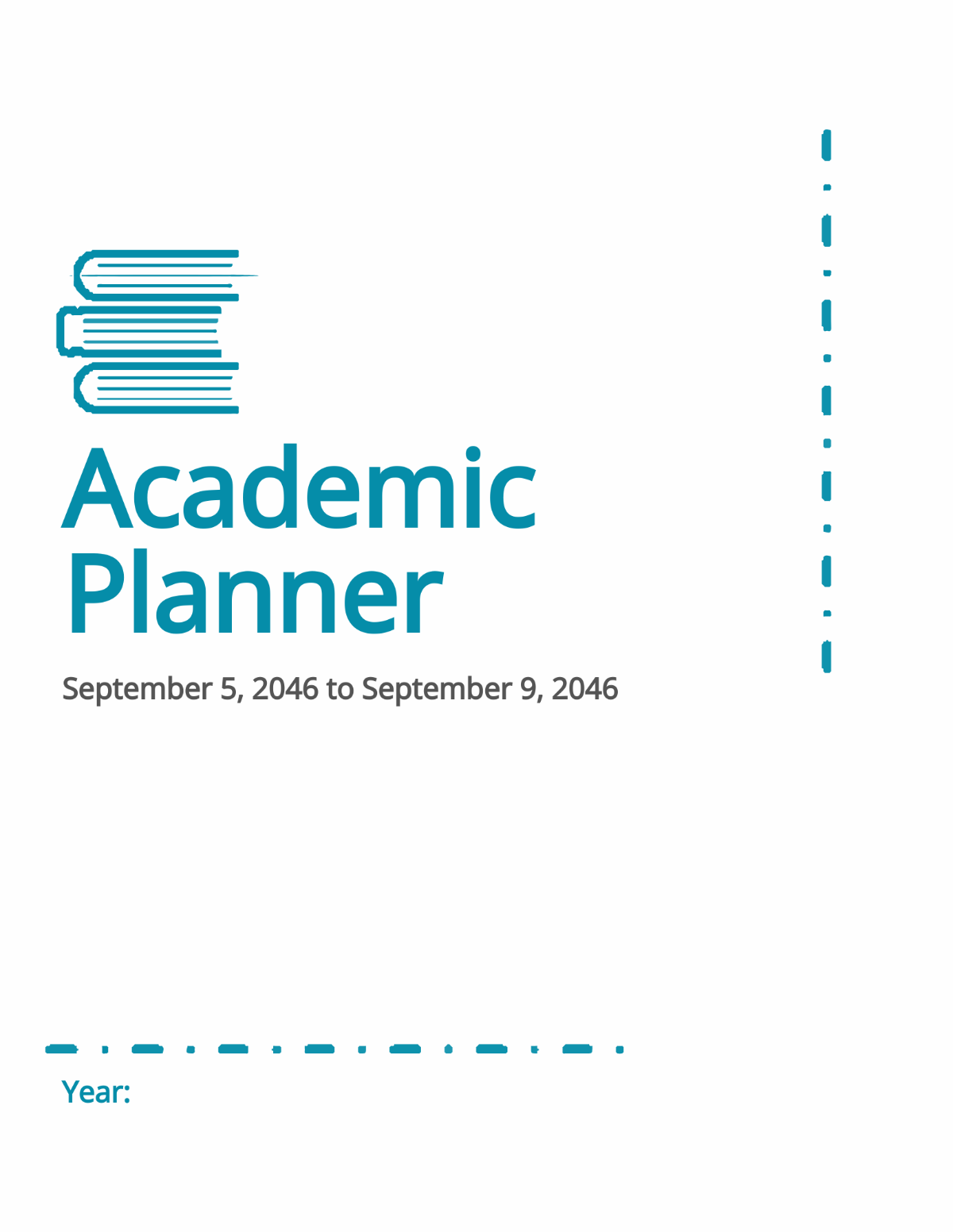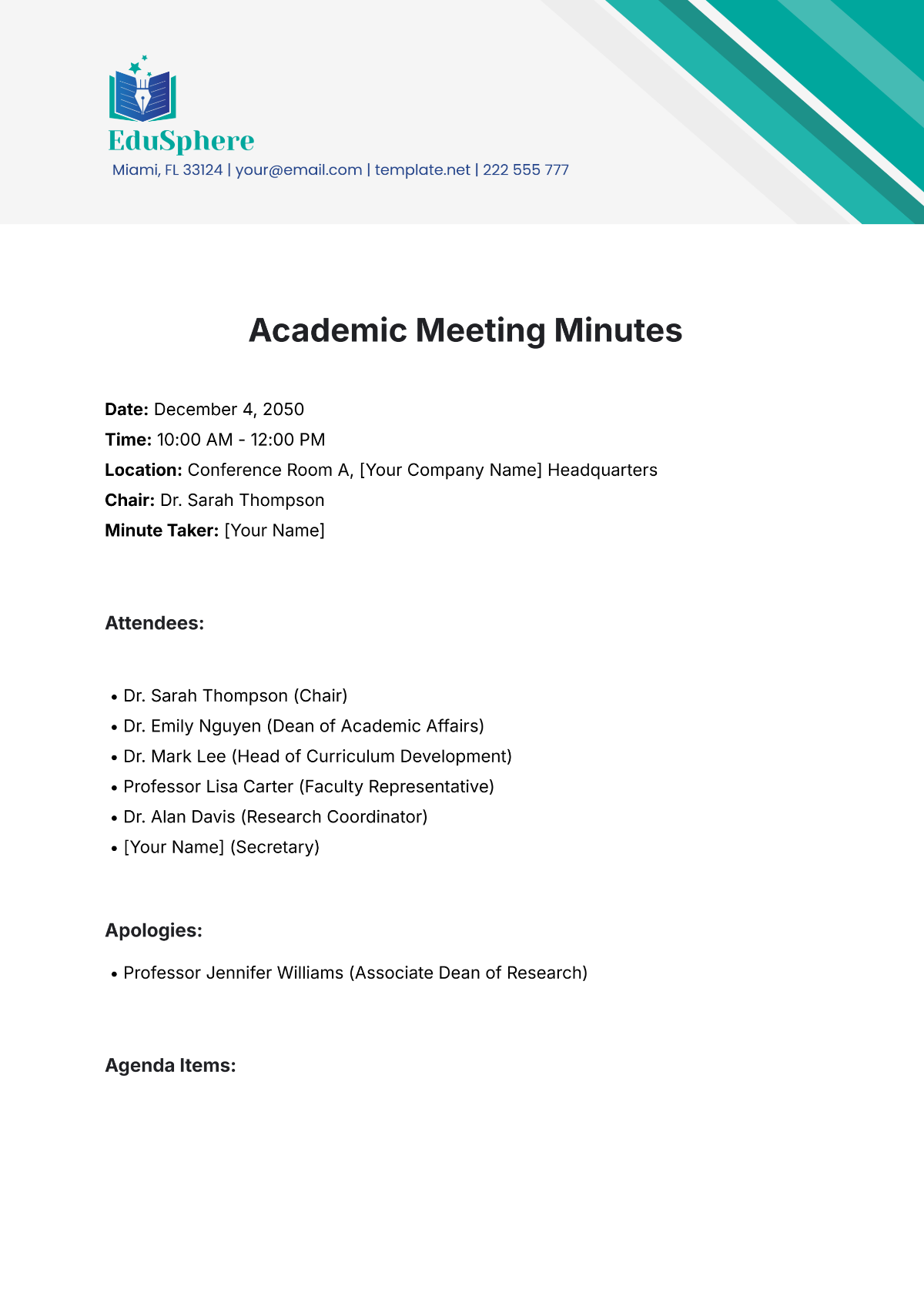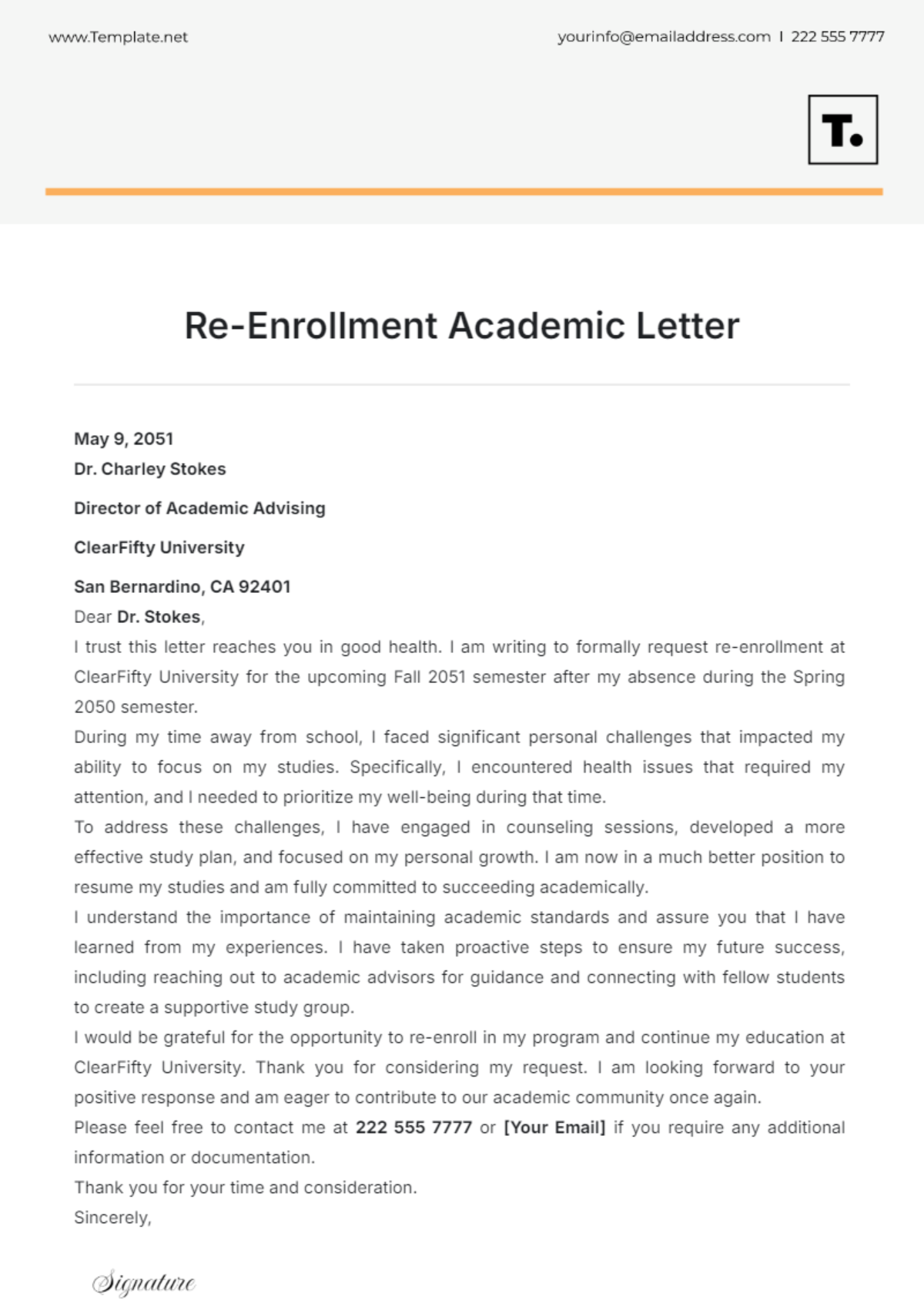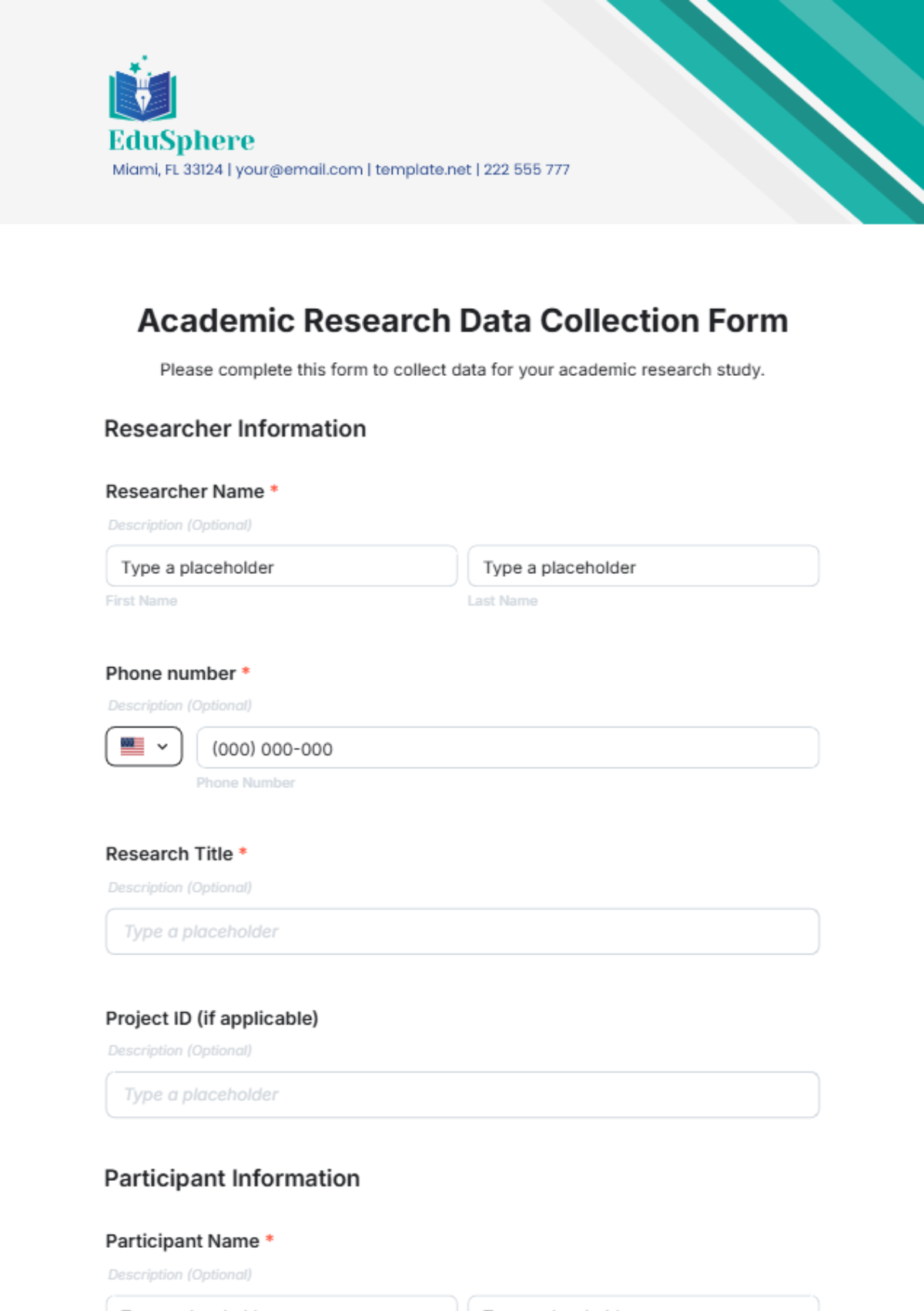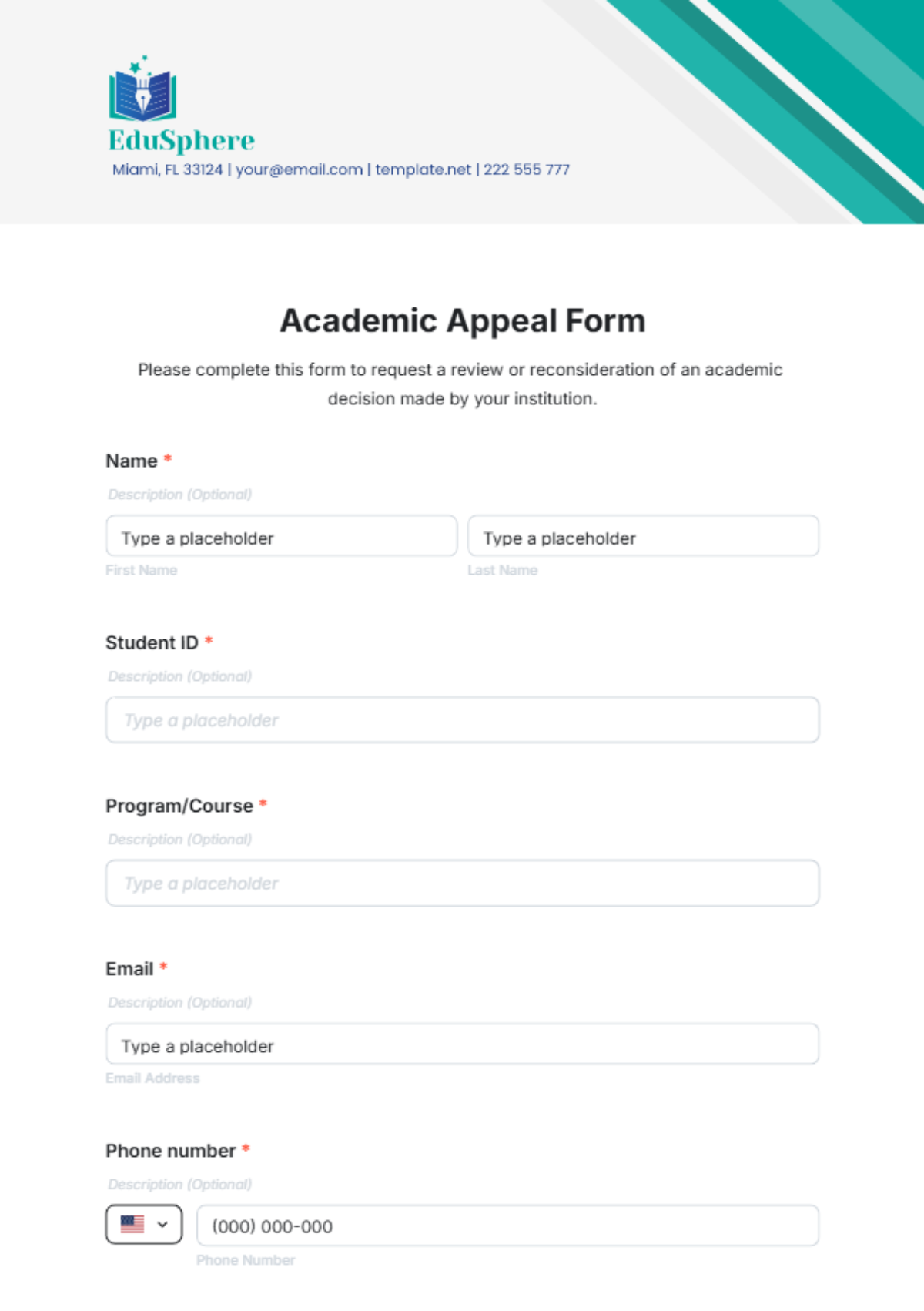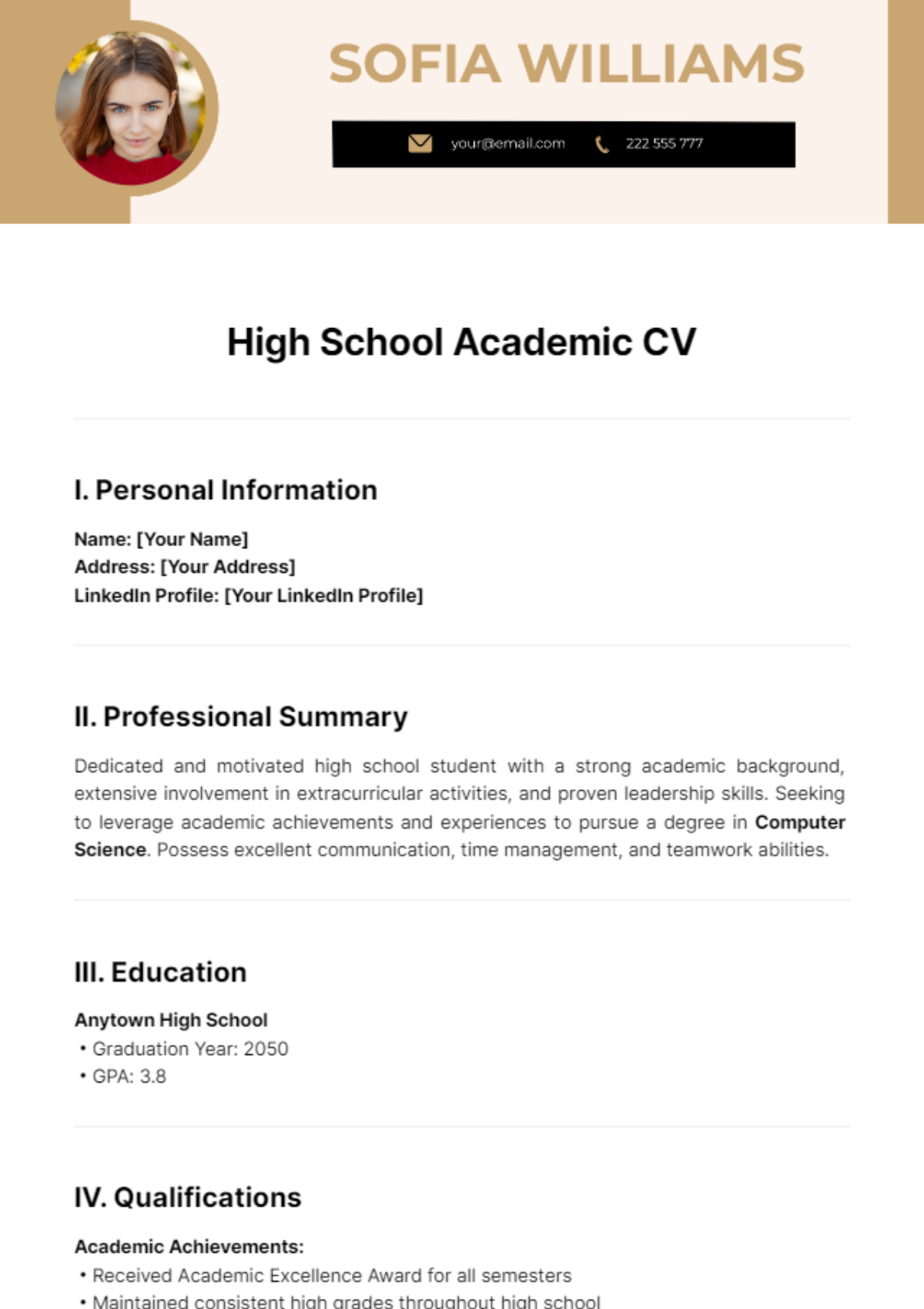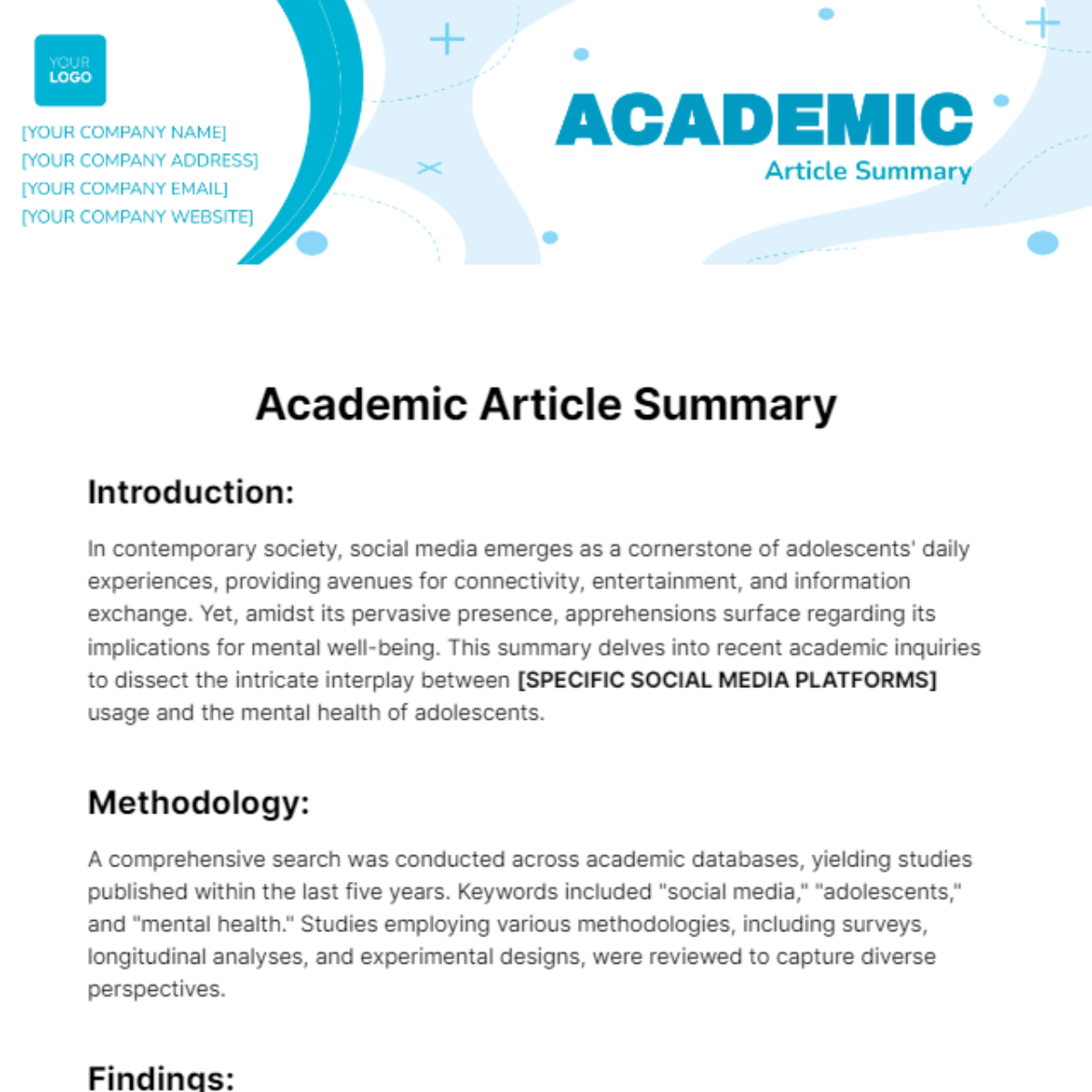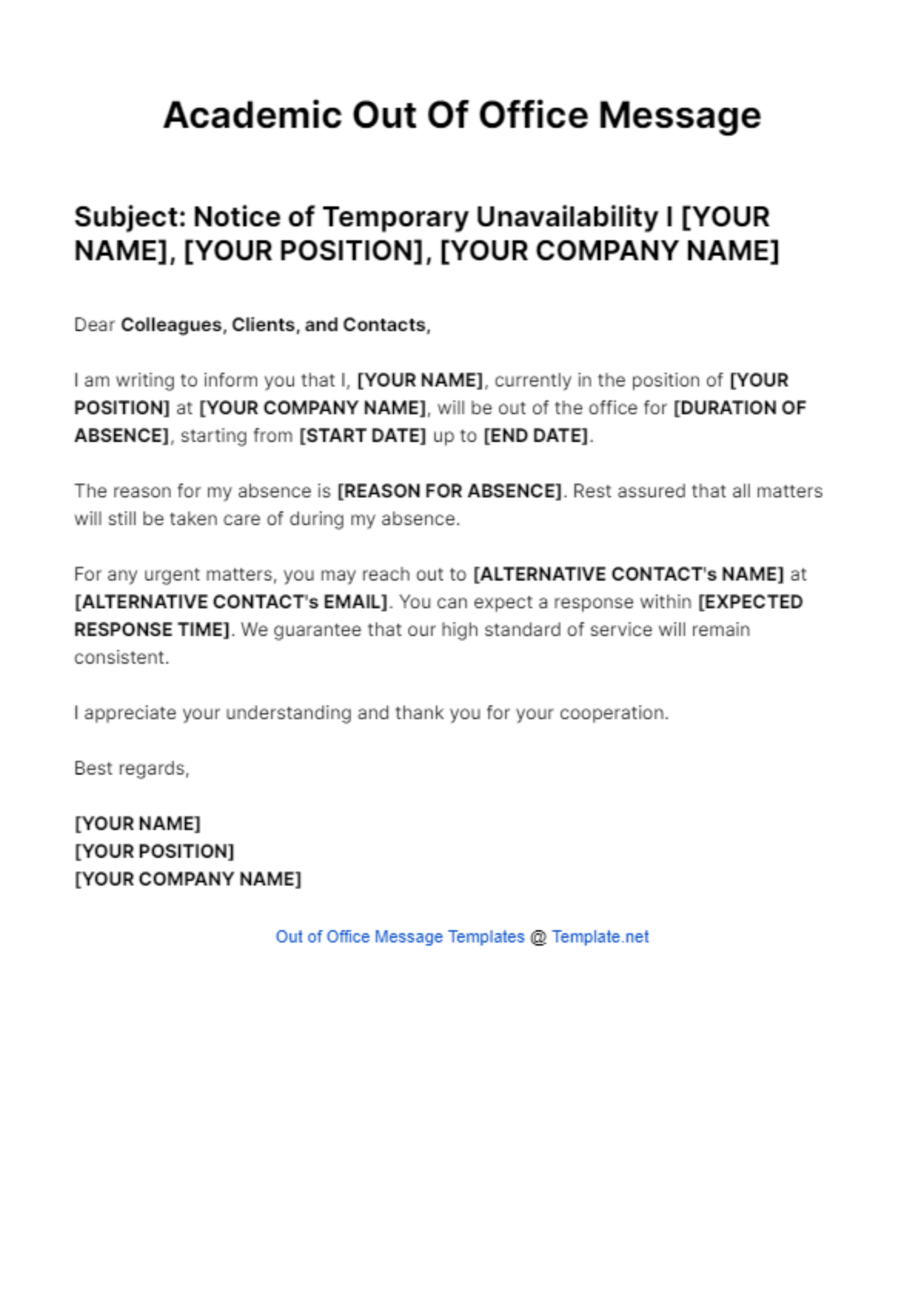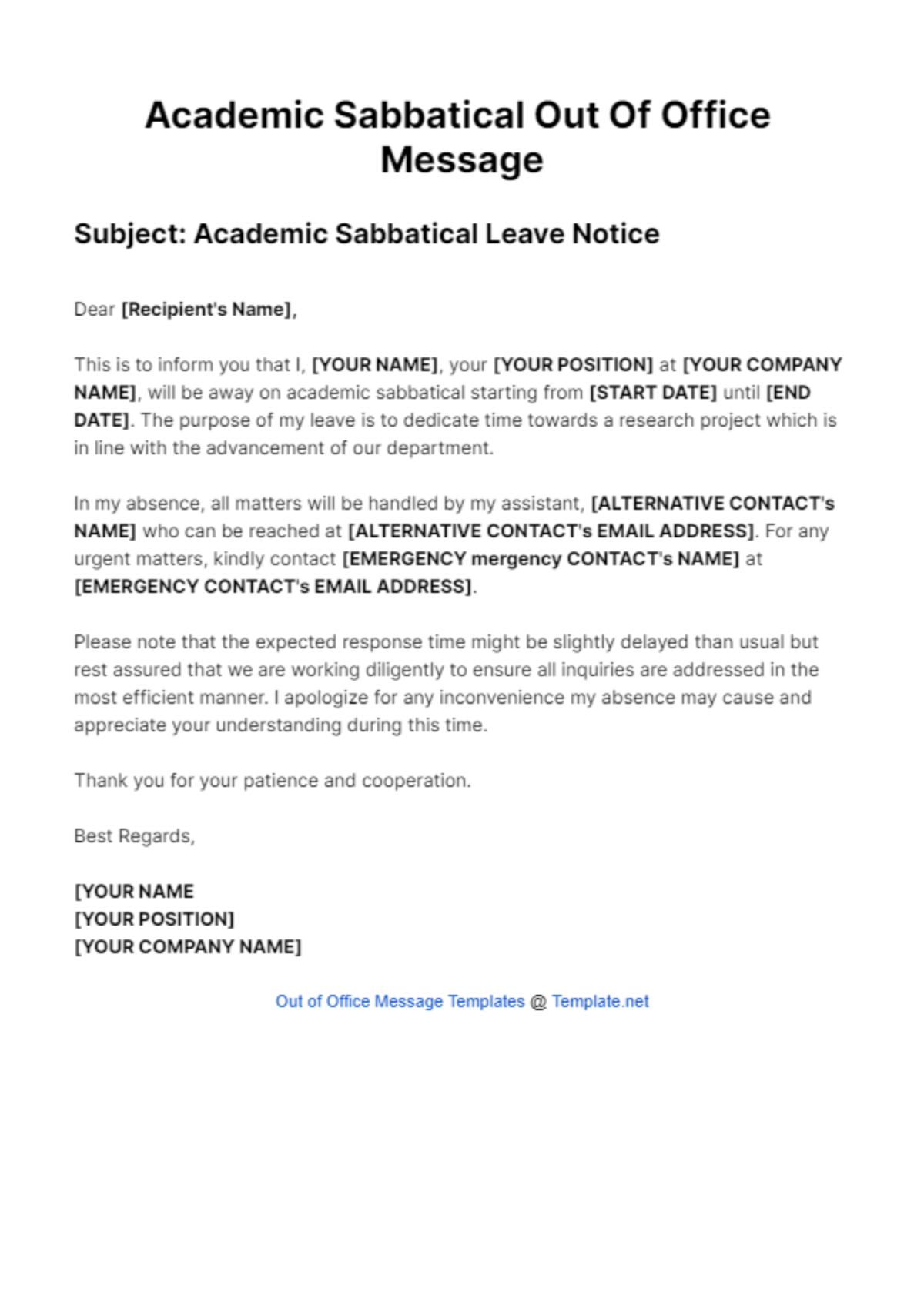Academic Advising Syllabus
Academic Advising Course
Course Title | [COURSE TITLE] |
Course Code | [COURSE CODE] |
Institution Hours | [INSTITUTION HOURS] |
Class Location | [CLASS LOCATION] |
Class Time | [CLASS TIME] |
Class Duration | [DATE] - [DATE] |
1. Course Description
This syllabus serves as a guide for students, academic advisors, faculty, and staff about the academic advising services of [YOUR COMPANY NAME]. It outlines the structure, expectations, and resources related to our services. It is designed to ensure smooth and effective academic advising programs within the institution to enhance the overall academic experience.
2. Instructor Information
Instructor: [YOUR NAME]
Contact: [YOUR EMAIL]
Institution: [YOUR COMPANY NAME]
3. Learning Objectives
To understand the purpose and importance of academic advising
To learn how to effectively communicate with advisors, faculty, and staff
To familiarize students with the resources available for academic success
To understand how to develop academic plans and set goals
To learn how to make informed decisions about their curricular choices
4. Course Schedule
Week | Topic | Activities/Assignments |
|---|---|---|
1 | Introduction to Academic Advising | Orientation to advising services |
2 | University Policies and Procedures | Review of academic policies and procedures |
3 | Academic Planning and Goal Setting | Setting academic goals and creating academic plans |
4 | Academic Resources | Overview of university resources and support services |
5 | Technology Tools for Advising | Training on advising software and online platforms |
6 | Effective Communication | Communication strategies for academic success |
7 | Academic Progress Monitoring | Review of academic progress and performance |
8 | Course Registration and Planning | Assistance with course selection and registration |
5. Required Reading and Materials
Academic Advising: The Extensive Manual for Prosperous Academic Advising.
Academic Advising Approaches: Strategies That Teach Students to Make the Most of College
The New Advisor Guidebook: Mastering the Art of Academic Advising
Academic Advising: A Campus Process
6. Assignments and Assessments
Research paper on the significance of academic advising
Presentation on the qualities of an effective academic advisor
Weekly reflections on the discussed topics
Group project designing an effective academic advising program
End of course quiz to test knowledge and understanding of academic advising
7. Course Policies
Attendance: Participation in advising sessions and workshops is mandatory.
Respect: Mutual respect and professionalism are expected in all interactions.
Confidentiality: Academic advisors adhere to strict confidentiality guidelines.
Timeliness: Appointments should be scheduled in advance, and deadlines for assignments should be met.
8. Grading Policy
Component | Weight (%) |
|---|---|
Weekly participation and engagement | 30 |
Academic plan development | 20 |
Technology proficiency assessment | 15 |
Academic progress review | 20 |
Course registration completion | 15 |
9. Additional Resources
Academic Advising Office Website: Access valuable resources, FAQs, and scheduling tools to enhance your advising experience.
University Student Handbook: Explore university policies, academic requirements, and student support services.
Faculty and Staff Directory: Connect with academic advisors, faculty members, and staff for additional assistance and guidance.
Academic Support Services Center: Seek academic tutoring, writing assistance, and study skills workshops to support your academic success journey.
Disclaimer
Changes may occur within this course syllabus and the instructor has the prerogative to adjust the course content or schedule as needed. The academic advising office also can modify the syllabus to fit students' and university's needs. All stakeholders including students, academic advisors, faculty, and staff will be promptly informed about any alterations.

